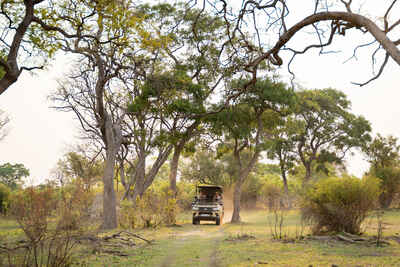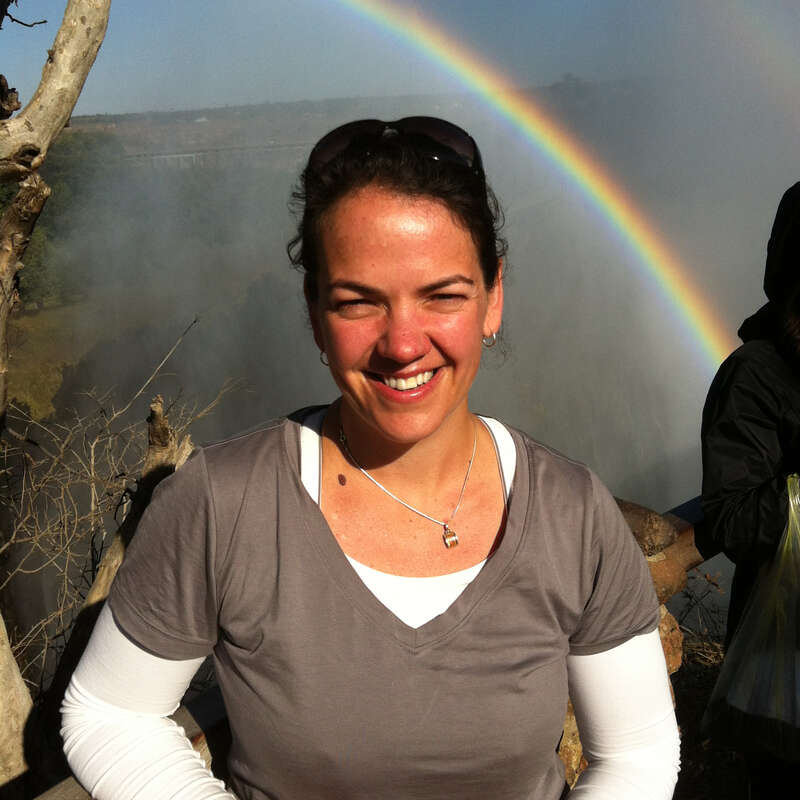About Karangoma
On the edge of a forested peninsula, at the northern reaches of Botswana’s Okavango Delta, Karangoma is a new camp with deep roots.
Opened in May 2024, Karangoma is, on the surface, a classic safari camp: khaki canvas tents tucked amongst ancient leadwood and sausage trees, a social ‘mess tent’, a starlit campfire circle for sundowners and storytelling, and an experienced, local guiding team. And yet it differs fundamentally from almost all other safari camps. For Karangoma has been set up in partnership with the local Bukakhwe San community, allowing guests here to gain a genuine and fascinating insight into their lifestyle, skills and involvement in the area’s conservation.
Karangoma offers back-to-basics safari charm that prioritises an authentic safari adventure over luxurious excesses. It’s a slower-paced camp where good guiding, cultural sensitivity and a reconnection with nature are the focus, making it an excellent option for anyone keen to spend time with Botswana’s people as well as enjoying excellent wildlife: on foot, by boat or in a 4x4.
Listen to the lions’ roar from camp, track the wild dogs denning in the area, float alongside iridescent kingfishers spotting for painted-reed frogs, and learn about the camp-driven initiatives to reduce human-wildlife conflict for the communities bordering the Okavango Delta. Karangoma is about variety and immersion.
Our view
With only 6 tented suites, Karangoma is an intimate safari camp, classically built with contemporary finishes to keep you comfortable, and a local team that warmly welcomes you into their ‘backyard’. It’s a place where time is taken to appreciate and understand northern Botswana’s wilderness surroundings. A rare camp for genuine San experiences and gaining a real insight into conservation initiatives aimed at reducing human-wildlife conflict.
Accommodation
6 tented suites
Children
Best for 8+
Open
All year
Activities

4WD Safari

Birdwatching

Boat trip

Guided walking safari

Helicopter

Mokoro

Night drive

Private activities
Traveller reviews of Karangoma
2 real, un-edited reviews from Expert Africa's travellers.
Arrived 20 Mar 2025, 4 nights
"Karangoma review"
Overall rating: Excellent
Arrived 23 Oct 2024, 4 nights
"Karangoma review"
Overall rating: Excellent
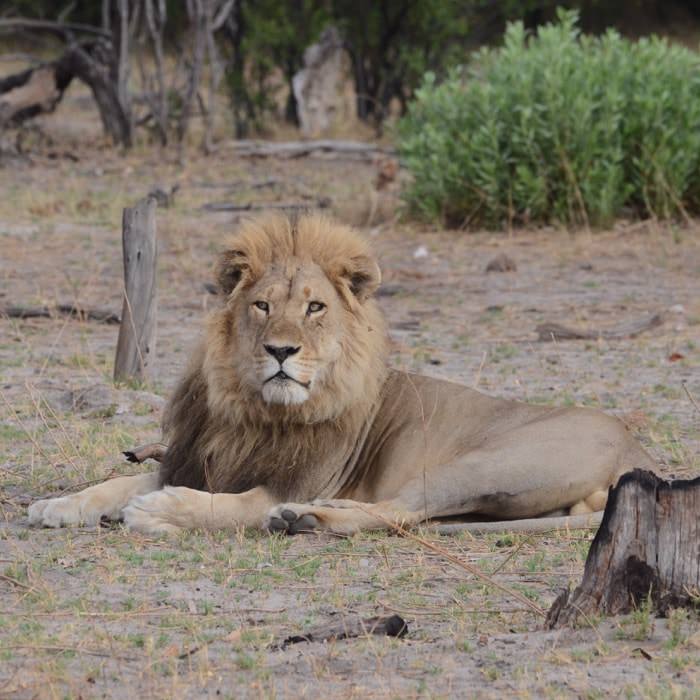
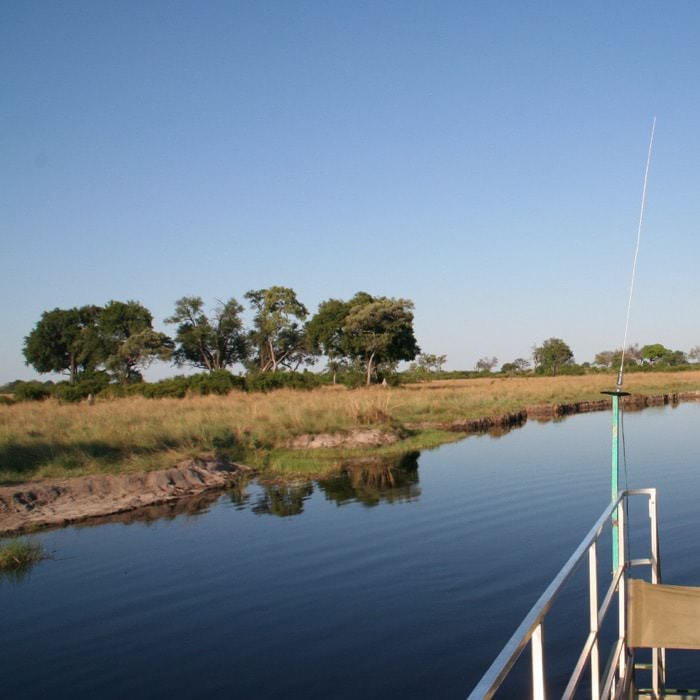
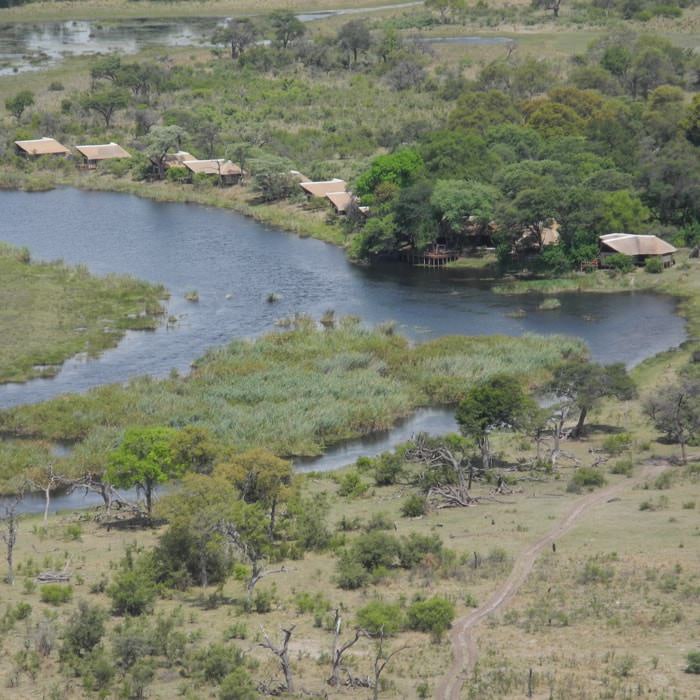
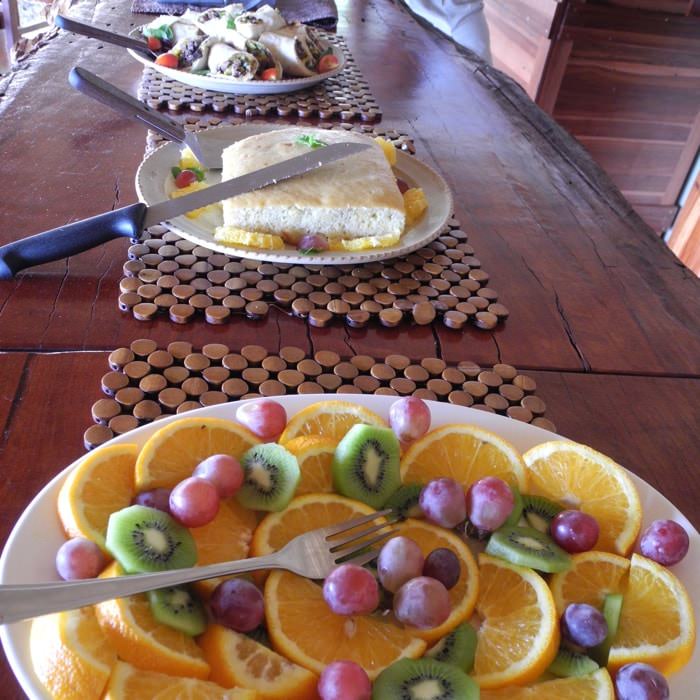
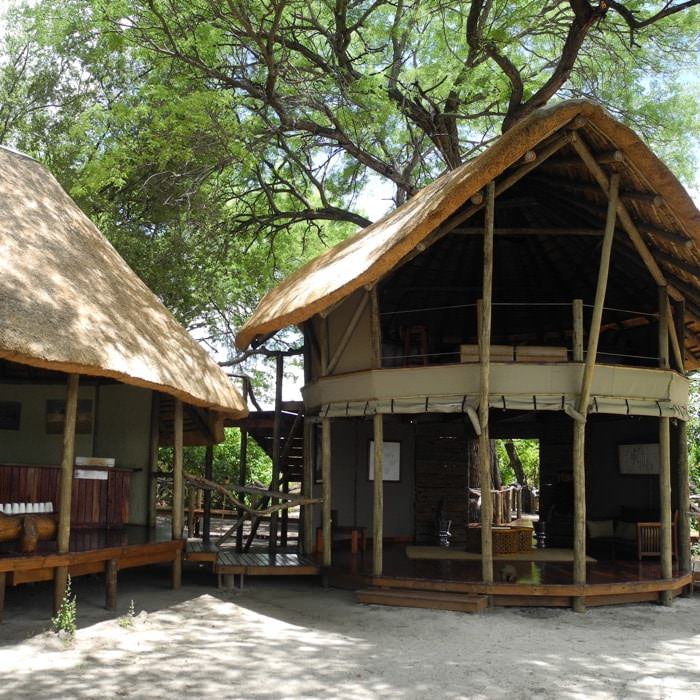
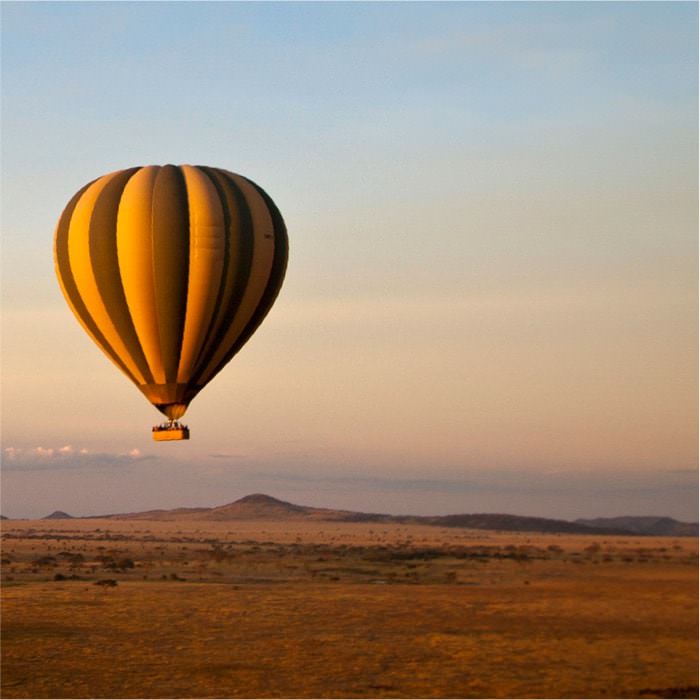
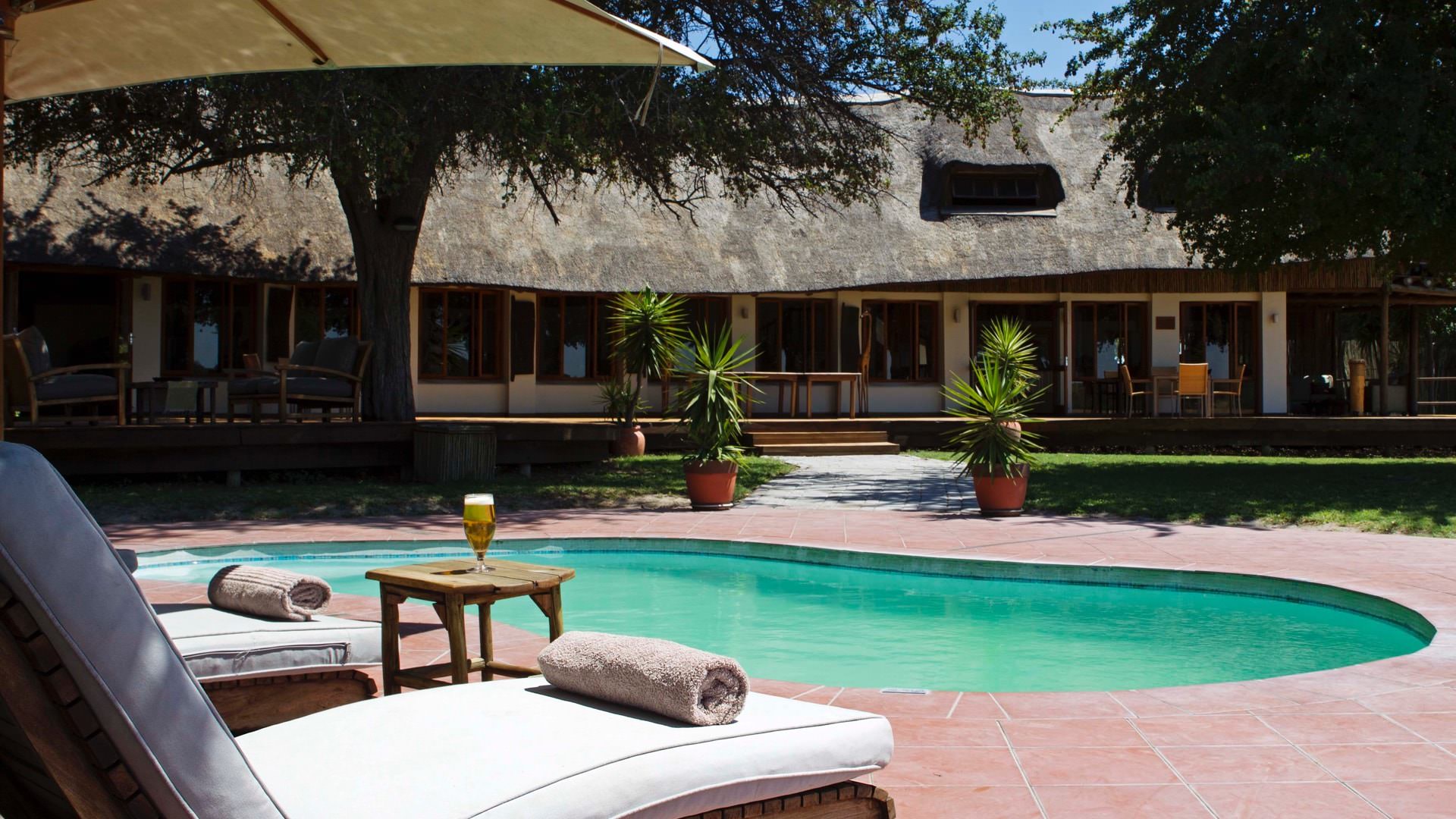
Expert Africa's gallery
When we travel we take lots of photos ourselves to give you a real and un-edited view of the safaris. See our 1 pictures of Karangoma to get the candid view.
View galleryKarangoma: Our full report
Karangoma is in the northeastern region of the Okavango Delta, within the expansive KAZA Transfrontier Park.
This park spans over 500 square kilometers across Botswana, Namibia, Angola, Zambia, and Zimbabwe, dwarfing the state of California in size and nearly equivalent to France's land area. Karangoma sits centrally within this area, at a crucial juncture where the waters of the Okavango Delta meet the expansive northern woodlands. As a result, the camp is surrounded by a diverse range of habitats, abundant wildlife species and birds, and takes full advantage of this varied terrain in offering a wide array of safari experiences.
Extending into the Okavango’s floodplains from its shady site in the forest, Karangoma is an intimate camp, with only six spacious tented suites – including one for families. Raised on low wooden decks to allow for high flood years, the classic safari exteriors make way for modern interiors inspired by local Hambukushu basketry patterns. They are stylish and understated with comfortable beds and small lounge; large mesh windows afford panoramic views and a welcome breeze, and ensuite bathrooms which feature both indoor and outdoor showers. All round, the tents make a great spot for relaxation and rejuvenation after a day of adventure in the wilderness.
Neat, winding paths lead to the central tent where guests meet for drinks, shared meals and campfire stories of an evening. With a maximum of 14 guests in camp at any time, its small size leads to laid-back socialising, and the team here are always on hand to talk about the area, wildlife and community.
For safari activities, the camp’s location between woodlands to the north and the Delta’s floodplains allow for both land and water-based activities. Safari game drives (day and night) are conducted in open 4x4 vehicles, providing opportunities to observe Africa's most iconic large mammals. Walking safaris, tracking animal prints, learning about the flora, and exploring the surroundings with incredibly knowledgeable San trackers make for enlightening trips and a welcome chance to stretch your legs. And for a truly memorable Okavango experience, occasional refreshing dips in the waters of the delta are possible! Depending on the season, the Magweqgana Channel also offers the chance to enjoy boat rides or mekoro trips (traditional canoes), affording super sightings of red lechwe and wetland birdlife.
The wildlife is diverse here. For those keen on predators: there are two resident packs of wild dogs in the area, one with a healthy 14-strong population, who make for exciting tracking and fast-paced game drives if you’re lucky to spot them hunting impala and reedbuck. There are also prides of lion patrolling the area and leopards in the established forests behind camp. You can expect to see a good range of herbivores, with particularly high densities of elephant and zebra. Buffalo, wildebeest and lechwe also occur in good numbers here. By the water, the birdlife is super with colourful kingfishers and waders in evidence.
Unlike most safari camps, Karangoma offers visitors real chance to interact in a meaningful way with the local Bukakhwe San community, who are partners in the safari camp. The camp has a real commitment to conservation and sustainable tourism practices, and is committed to employing members of the Bukakhwe clans. In conjunction with local NGOs, Karangoma is working to help local people protect their livestock, access better veterinary care and manage grazing more effectively – thus reducing cattle losses in the community and allowing the wildlife population to thrive. There is a genuine opportunity here to witness these conservation efforts first-hand – so you can gain an insight into satellite-collared lion movements and the frequency with which community cattle are at risk from wildlife interactions. Guests can take time with their guide to visit Gudigwa village (30km), see the cattle boma, engage with herdsmen and learn about techniques used to prevent lion preying on livestock. If you’d like to spend more time with the community, Karangoma will arrange a fly-camp on request, to providing an insight into village life alongside wild animals.
Karangoma offers not only an terrific safari experience but also a chance to contribute to the preservation of the rich biodiversity and cultural heritage of the Okavango Delta. So whether you’re seeking thrilling wildlife encounters, tranquil moments in remote wilderness, or cultural immersion, Karangoma promises an authentic safari experience in Botswana.
Activities
4WD Safari
Birdwatching
Boat trip
Guided walking safari
Helicopter
Mokoro
Night drive
Private activities
Families & children
- Attitude towards children
- Children aged 8 years and older are welcome at Karangoma, though they must be over 12 to participate in walking safaris and mokoro trips.
- Property’s age restrictions
- 8 years +
- Equipment
- Karangoma has 1 family tent.
- Generally recommended for children
- Yes – but it's really best for older children who are also sensible and careful, ideally at least 10 years old, and will enjoy both the wildlife and interactions at the village.
- Notes
- Children must be supervised at all times by their parents/guardians, as predators wander freely through camp.
Food & drink
- Usual board basis
- Full Board & Activities
- Food quality
- With Karangoma yet to open, we haven’t had the chance to sample its culinary delights, but we’ve stayed at its sister camp in Camp Hwange in Zimbabwe dozens of times and enjoyed delicious, home-cooked meals so we expect the same high standards.
Meals will follow the traditional safari pattern of a dawn campfire bite, followed by a filling brunch after your morning safari activity. Afternoon tea of savoury and sweet treats at 3 o’clock, before heading out for your afternoon activity, and finally a social, communal dinner in the evening, often under the stars.
Dietary requirements can be catered for but must be shared in advance due to the remote nature of the camp. - Dining style
- Group Meals
- Dining locations
- Indoor and Outdoor Dining
- Further dining info, including room service
- There is no room service at Karangoma.
- Drinks included
- All drinks that are stocked in camp.
Guests are given a water bottle that is filled up for them before activities etc. Bottled water is available on request.
Our travellers’ wildlife sightings from Karangoma
Since mid-2018, many of our travellers who stayed at Karangoma have kindly recorded their wildlife sightings and shared them with us. The results are below. Click an animal to see more, and here to see more on our methodology.

100% success

100% success

100% success

100% success

100% success

100% success

50% success

50% success

50% success

50% success

50% success

50% success

0% success

0% success

0% success

0% success

0% success

0% success
Getting there
- Location
- Okavango Delta Safari Reserves, Botswana
- Ideal length of stay
- 3 nights at Karangoma works well given the diverse range of habitats to explore, however, if you plan on spending a full day on activities at Gudigwa, the Bukakhwe San village, or would like to fly-camp, then we’d recommend you stay for 4 nights. Karangoma also combines well with 3-4 nights at its sister camp Camp Hwange in Zimbabwe.
- Directions
- Karangoma is accessed by light aircraft from either Kasane or Maun (25 minutes), landing at Vumbura bush airstrip; it is then a helicopter flight from the airstrip to the camp. Helicopter transfers from Maun (10-12 minutes) are also possible, with super Delta views from low-level flying.
- Accessible by
- Fly-and-Transfer
Special interests
- Cultural Experiences
- Karangoma has the local Bukakhwe San at its heart. The lodge is a genuine partnership with the San community & there are excellent opportunities to learn about their culture and lifestyle here, as well as the challenges of living alongside wildlife.
- See ideas for Cultural Experiences in Botswana
- Walking safaris
- Karangoma is a small and classic tented camp which has great herbivore densities, especially zebra and elephants in the surrounding areas; it offers walking and San tracking – and is a good camp for walking safaris in Botswana.
- See ideas for Walking safaris in Botswana
Sustainability
Bukakhwe San Community Development
At Karangoma, the most important component of conservation is their partnership with the local Bukakwe San clan and their commitment to conservation through reduced human-wildlife conflict.
This community live alongside wildlife and have often lost crops to elephants or livestock to lions and other predators. Working in partnership with a local NGO to introduce innovative herding and veterinary techniques, the team from Karangoma and the community hope to reduce stock loss and improve herd health. They have also introduced a sophisticated early warning system using satellite collars placed on lions so that local farmers on this northern edge of the Okavango now rarely lose cattle to stock-raiding lions.
From every guest’s booking, US$50 per person, per night is paid into the Community & Conservation fund which directly benefits community projects like this one.
In addition, Karangoma is committed to community training and employment in camp, and focuses some activities on the impressive traditional skills of the people. From the incredible wildlife tracking of the guides to the traditional music of the Bukakhwe people, there is much to be celebrated here.
See more great sustainability projects in Botswana
Communications
- Communications
- There is no cellphone reception or internet, but a satellite phone and radio are in place for emergencies only.
- TV & radio
- None
- Water supply
- Borehole
Health & safety
- Malarial protection recommended
- Yes
- Medical care
- Senior staff and guides have medical first-aid training. The nearest medical facility is in Maun and the camp has links to a flying- doctor service.
- Dangerous animals
- High Risk
- Fire safety
Useful info
- Disabled access
- Not Possible
- Laundry facilities
- Karangoma only has a limited laundry service.
- Money
- There is no currency exchange here.
- Accepted payment on location
- If you wish to tip, which is optional, then bring cash with you. Cash is accepted in any major currency.
Plan and book your trip with Expert Africa
All of our trips are tailor-made, so we'll always adapt them to suit you. Talk to an Expert and let us plan and arrange your perfect trip.

Talk to an Expert
Call or email us now! We’ll match you with the Specialist in our team who is best suited to help you. Then together we can start planning your trip.

Set up your itinerary
Based on our experience and your ideas, your specialist will create a detailed, costed itinerary. We’ll refine it together, until we have a trip that you’re perfectly happy with.

Prepare for your trip
The same Specialist will make the seamless arrangements for your trip, send you detailed travel documents, and be available to answer any questions before you depart.

Travel with peace of mind
After you set off, you’ll be cared for by our partners in Africa, most of whom have worked with Expert Africa for decades. And if you ever need us urgently, we’re available 24/7.

When you return
We love to learn about your trip, and so will always be grateful if you’ve the time to give feedback to your Specialist when you return.
Karangoma's location
Look closer at the environment and surroundings of Karangoma.
Other lodges in Okavango Delta Safari Reserves
Alternative places to stay in this same area.
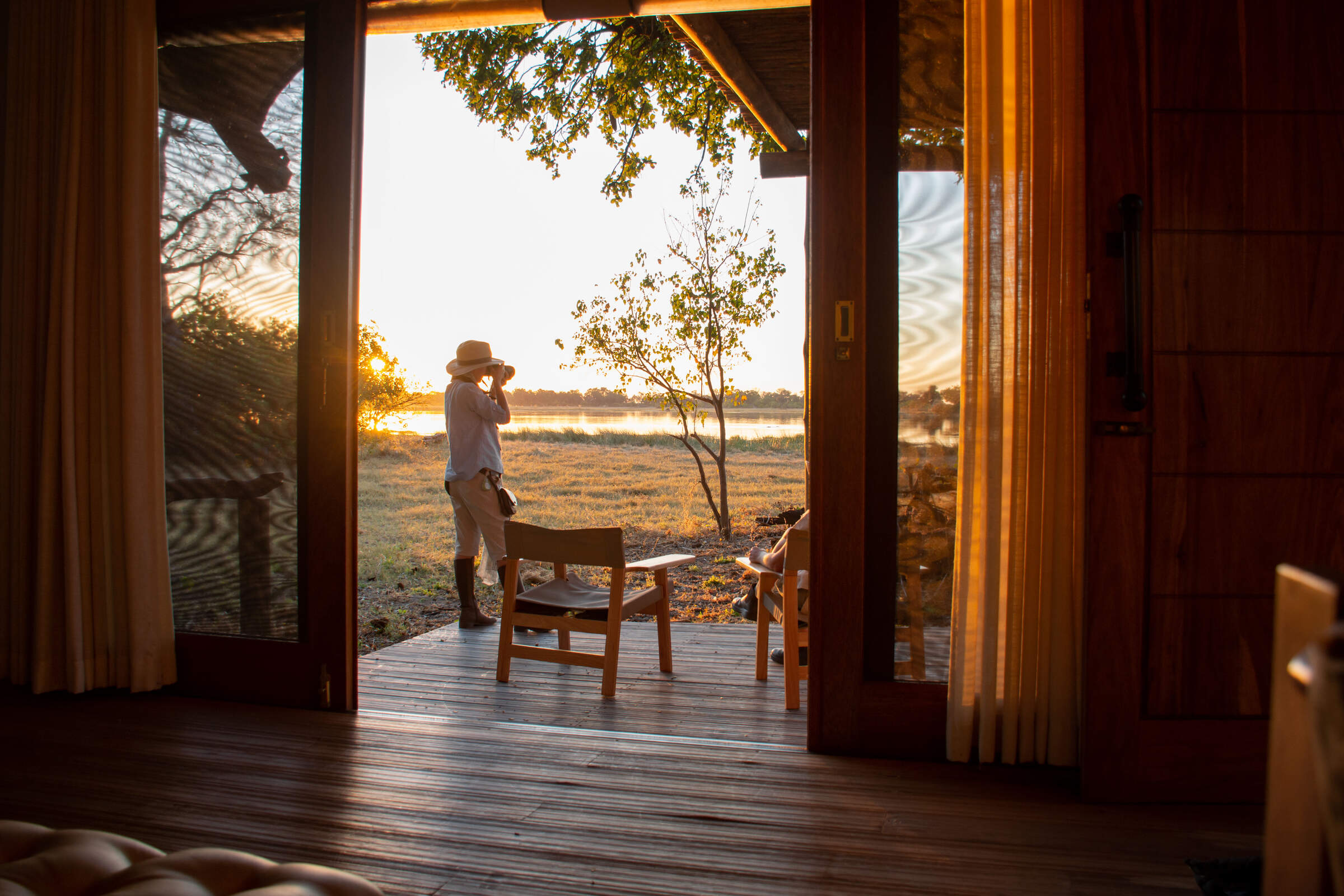
Kwara Camp
Kwara Camp's private reserve boasts land and water activities year-round, with excellent game-viewing opportunities and access to permanent channels of the north-east Okavango Delta.
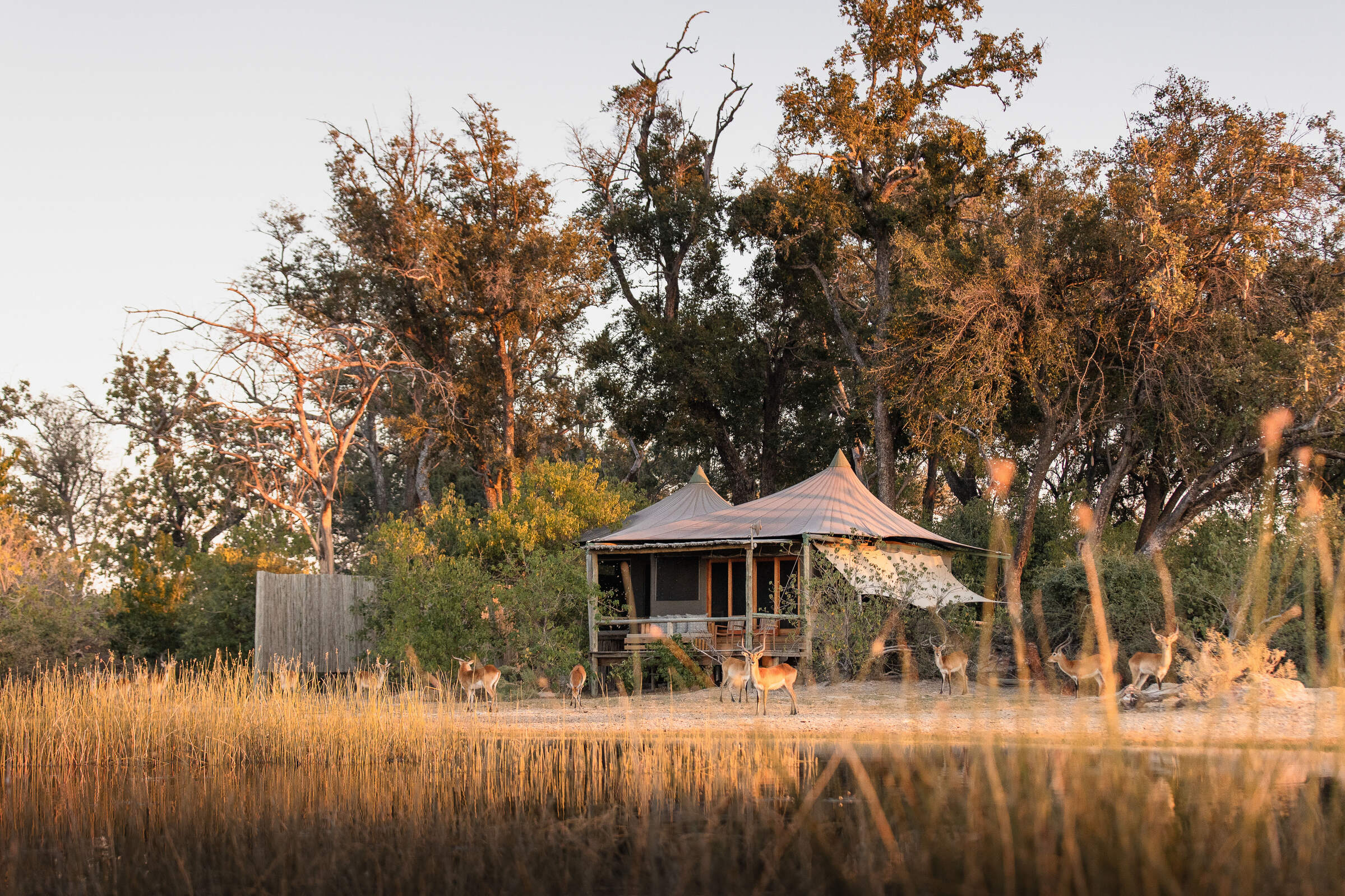
Little Vumbura
On a secluded island within a private reserve, Little Vumbura combines superb game viewing with a broad diversity of habitats in a truly picturesque setting.
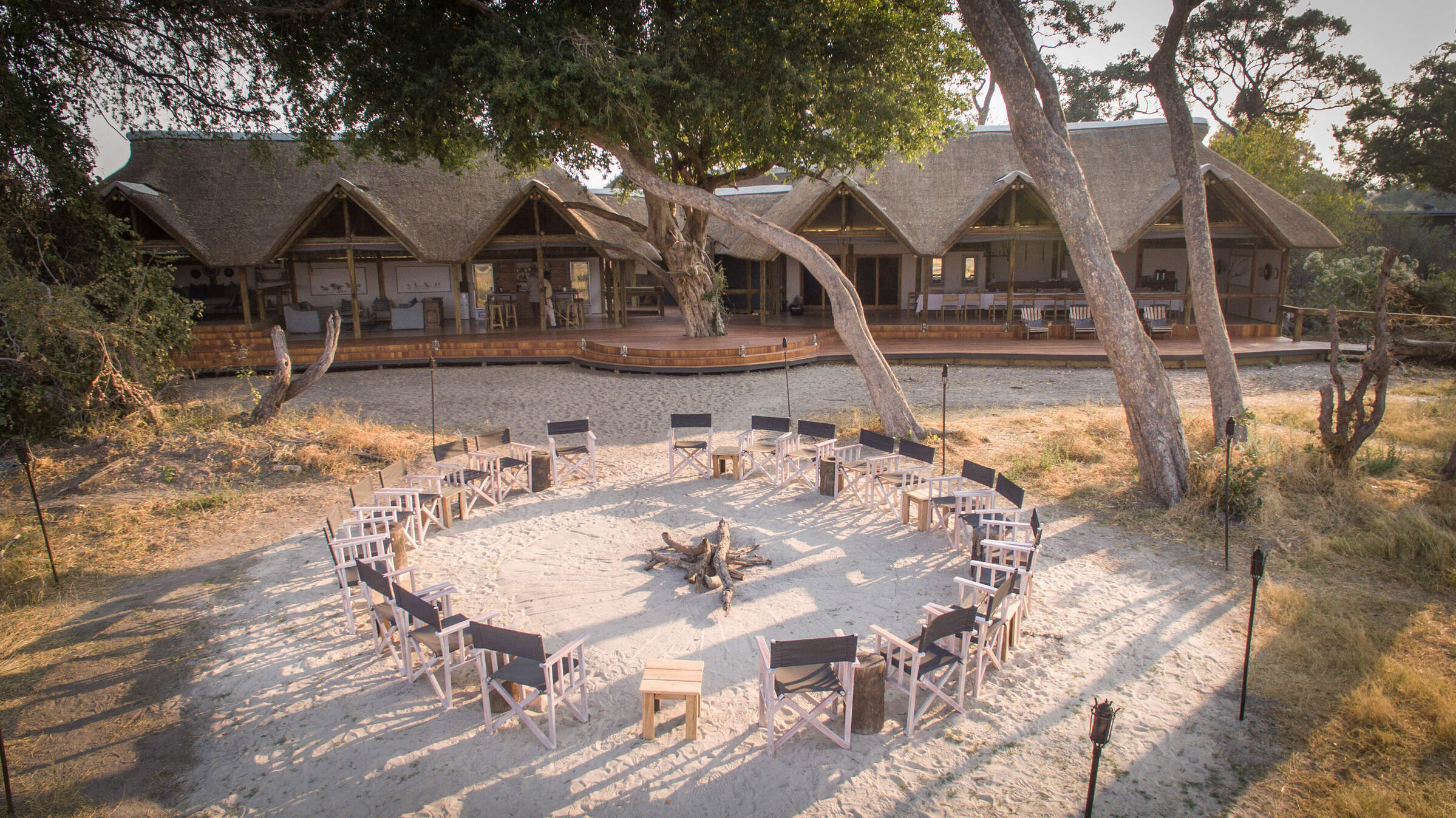
Splash Camp
Set in the Kwara Reserve, offering superb wildlife viewing year-round, Splash offers both land and water activities led by guides with a particular knack for tracking big game.
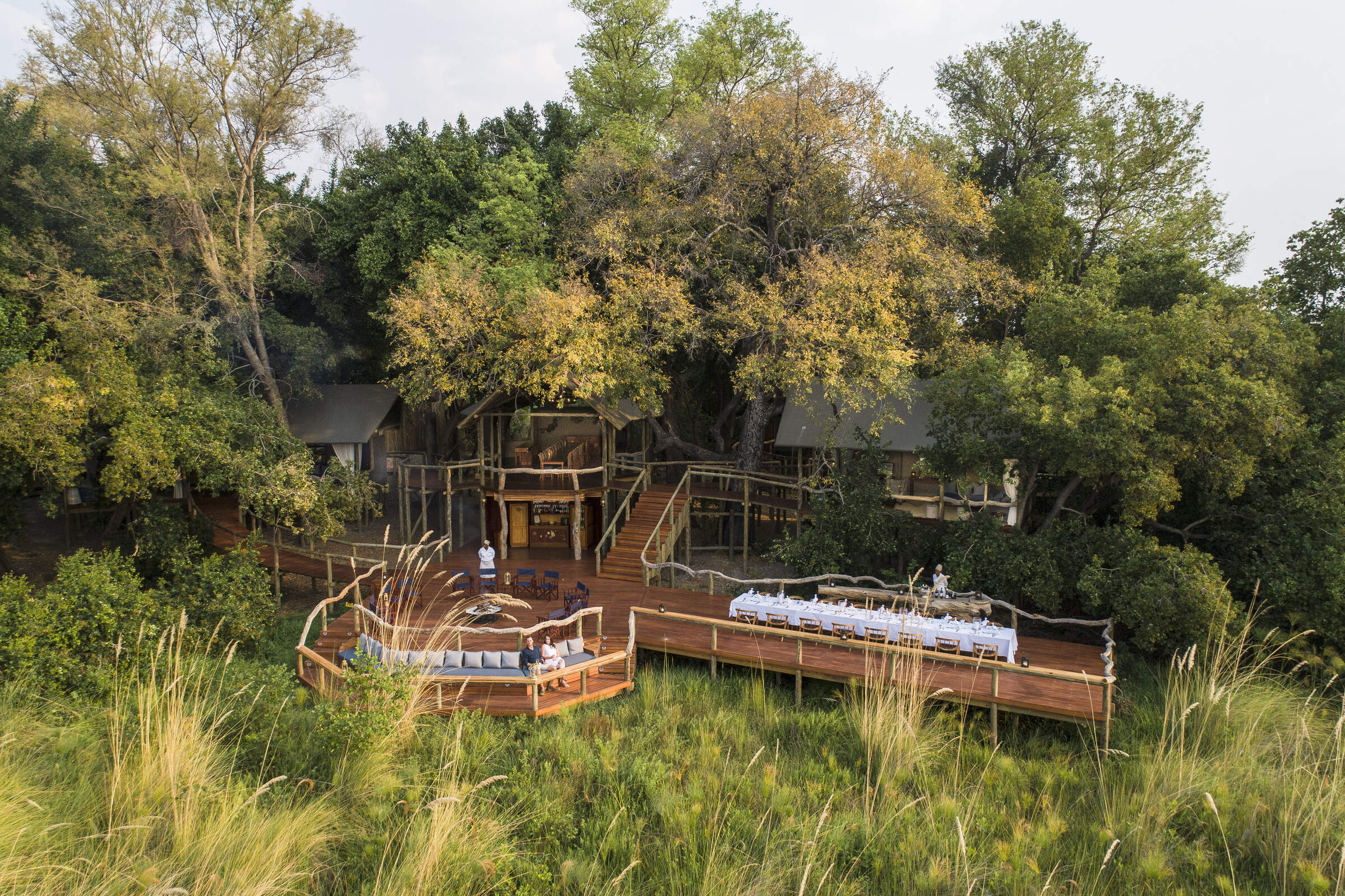
Shinde Camp
With experienced staff and a wealth of activities, Shinde offers a traditional safari in an exceptionally varied and wildlife-rich environment.
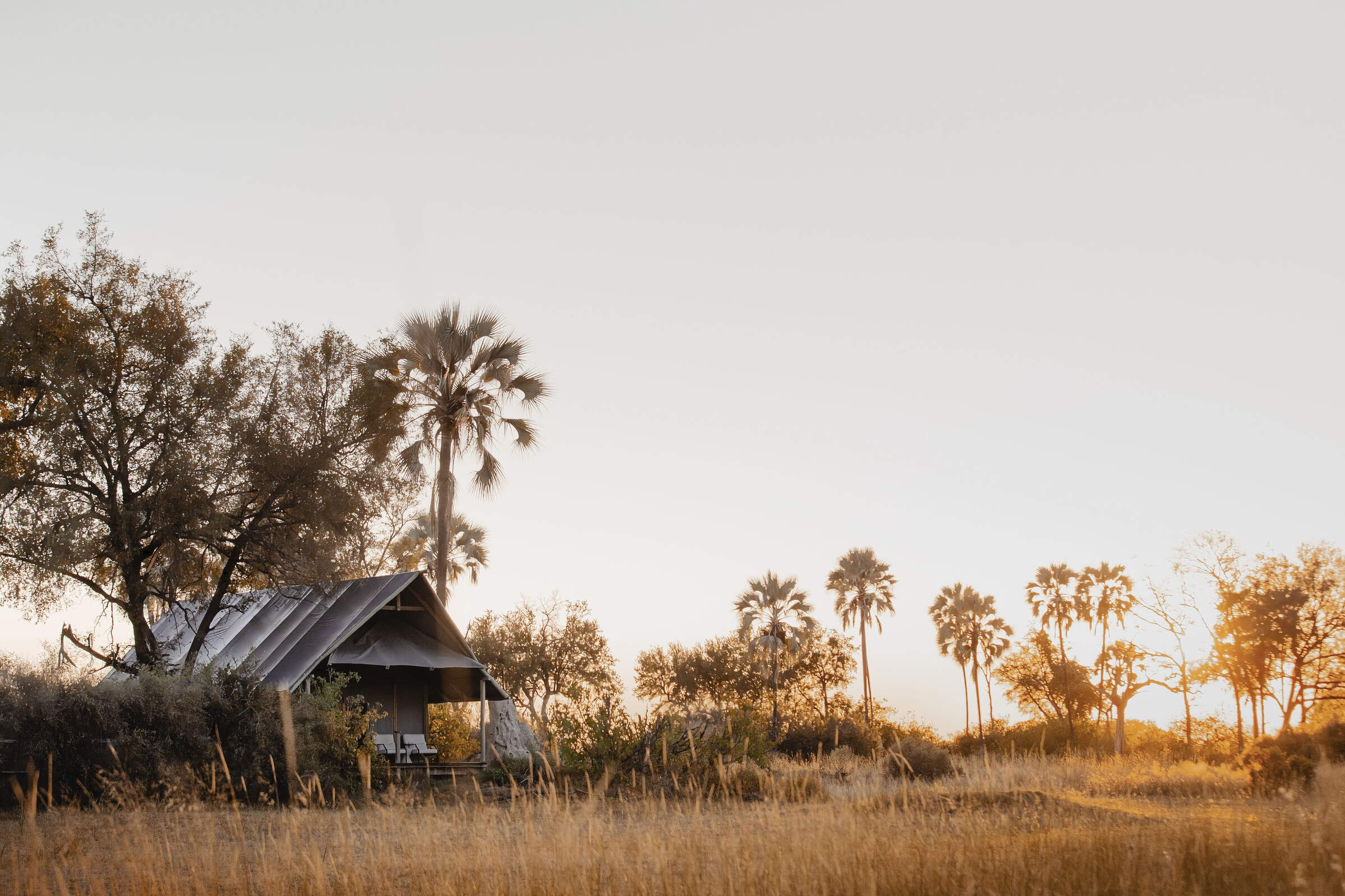
Chitabe Lediba
Chitabe Lediba, in Botswana's southern Okavango Delta, is a small family friendly safari camp; it offers great dry-land safaris and in our experience consistently delivers good game sightings.
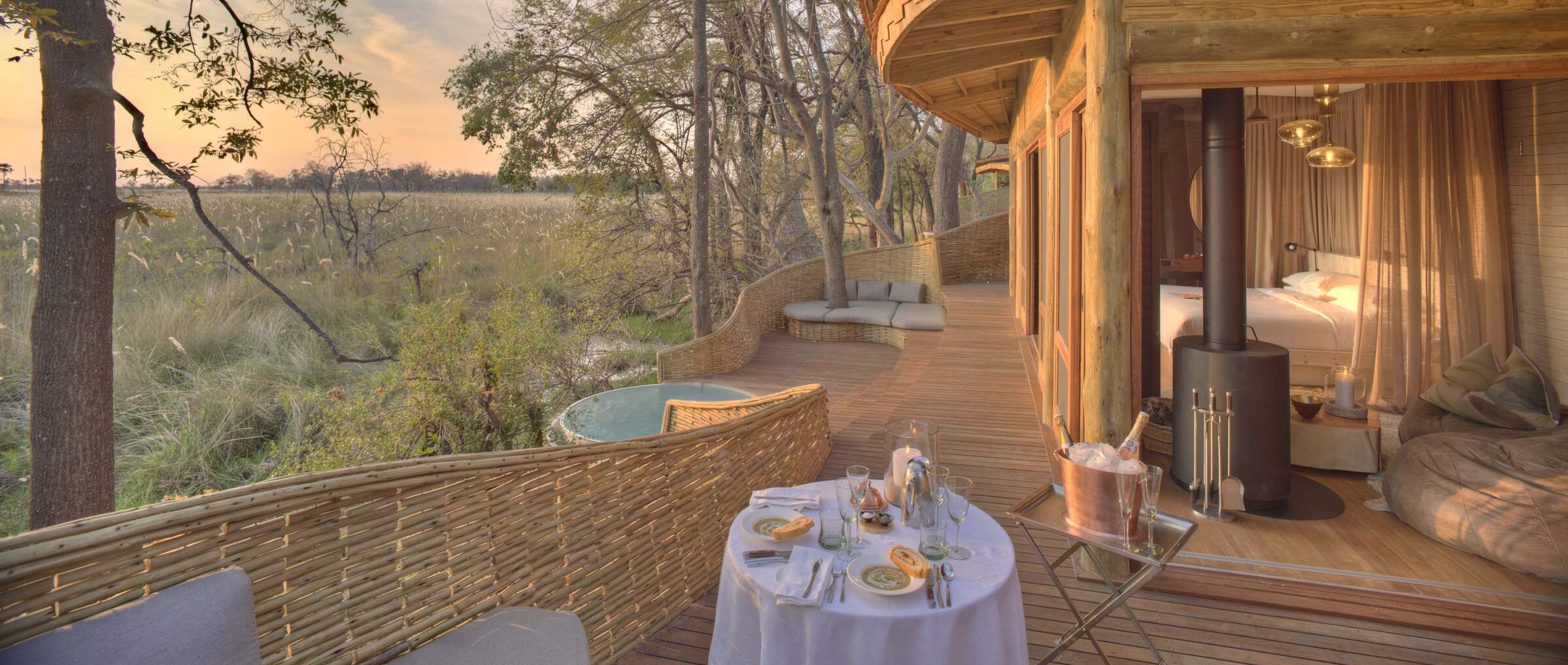
Sandibe Safari Lodge
The luxurious Sandibe Okavango Safari Lodge lies in a private concession in the heart of the Okavango Delta, beside Moremi Game Reserve, with superb big-game viewing.
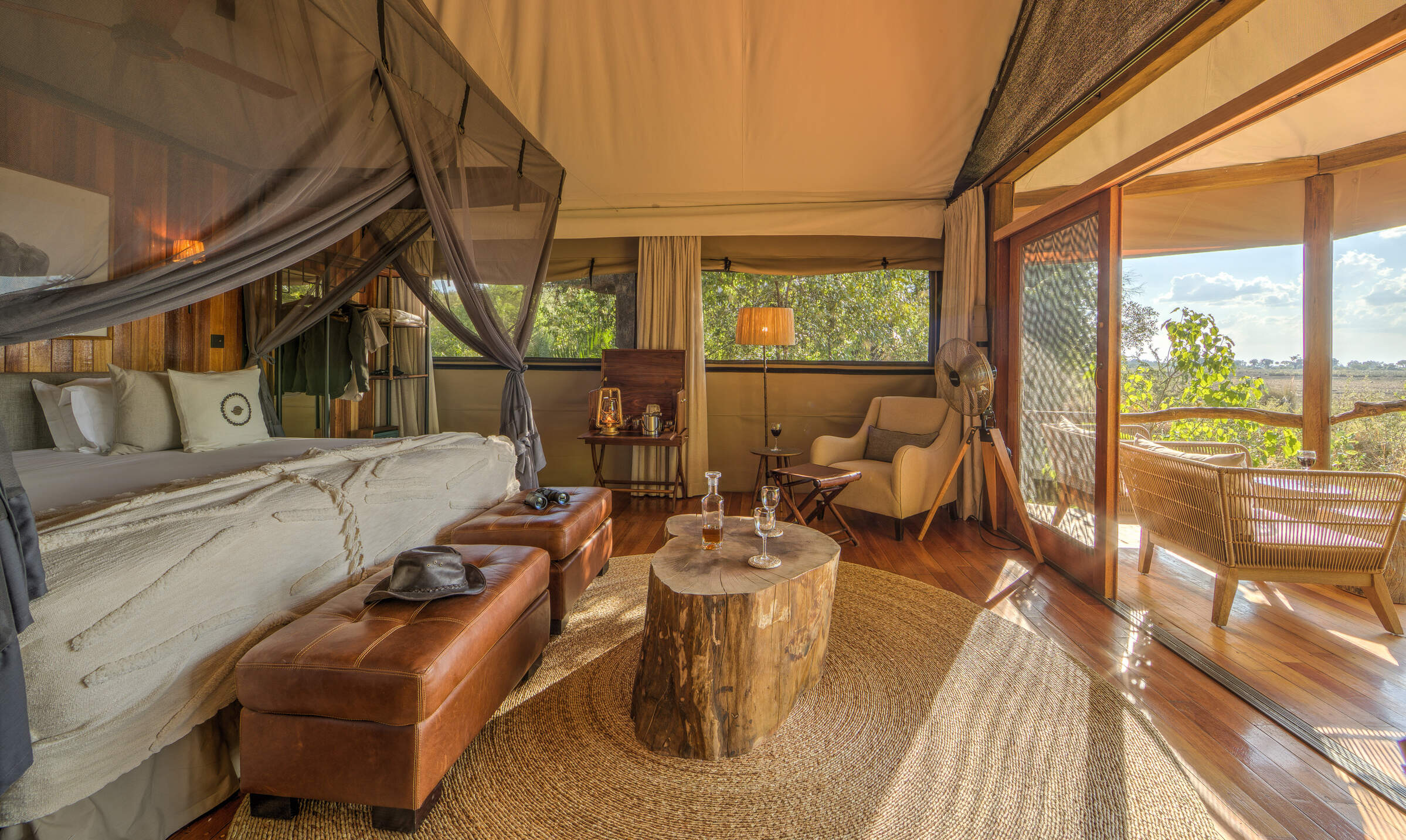
Kanana
In a beautiful part of the Delta, Kanana focuses on fantastic water activities and birding – including exclusive access to an impressive heronry.
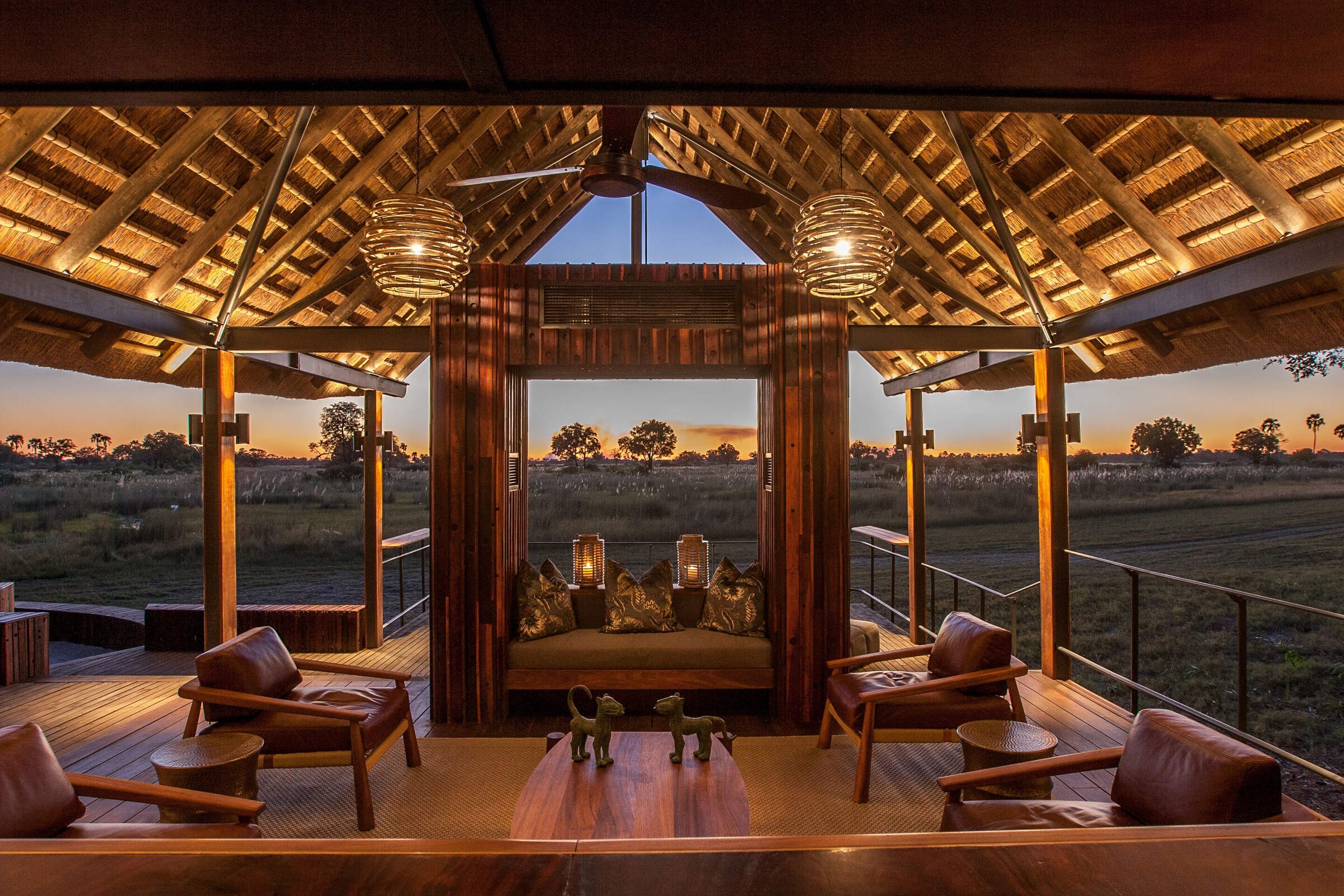
Chitabe Camp
In the southern Okavango Delta, the excellent Chitabe Camp concentrates on dry-land safaris in an area that we've found particularly good for wild dog sightings.
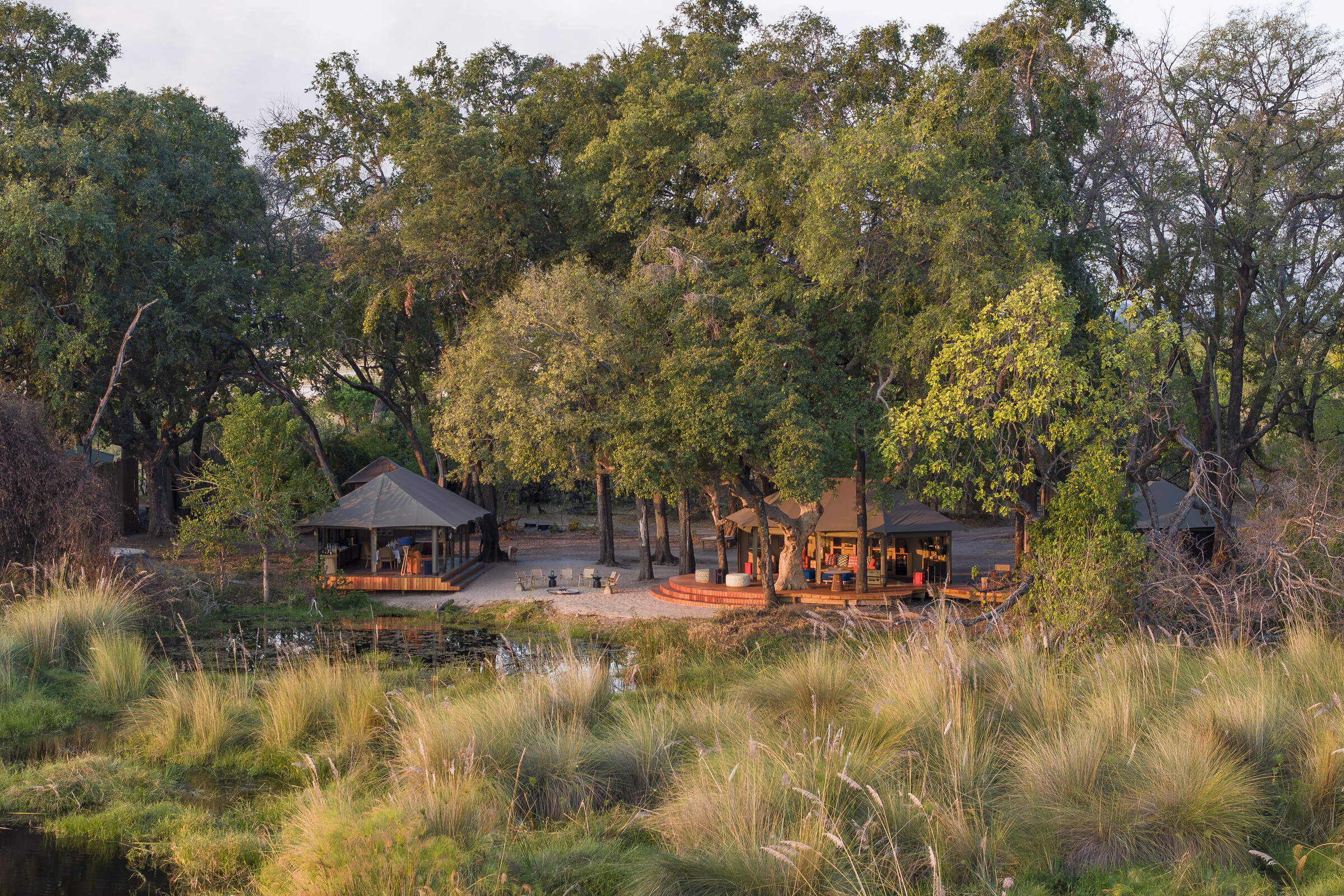
Shinde Footsteps
Small and simple, but comfortable, Shinde Footsteps focuses on walking safaris as well as game drives; it also runs a special children's programme so is particularly suitable for families.
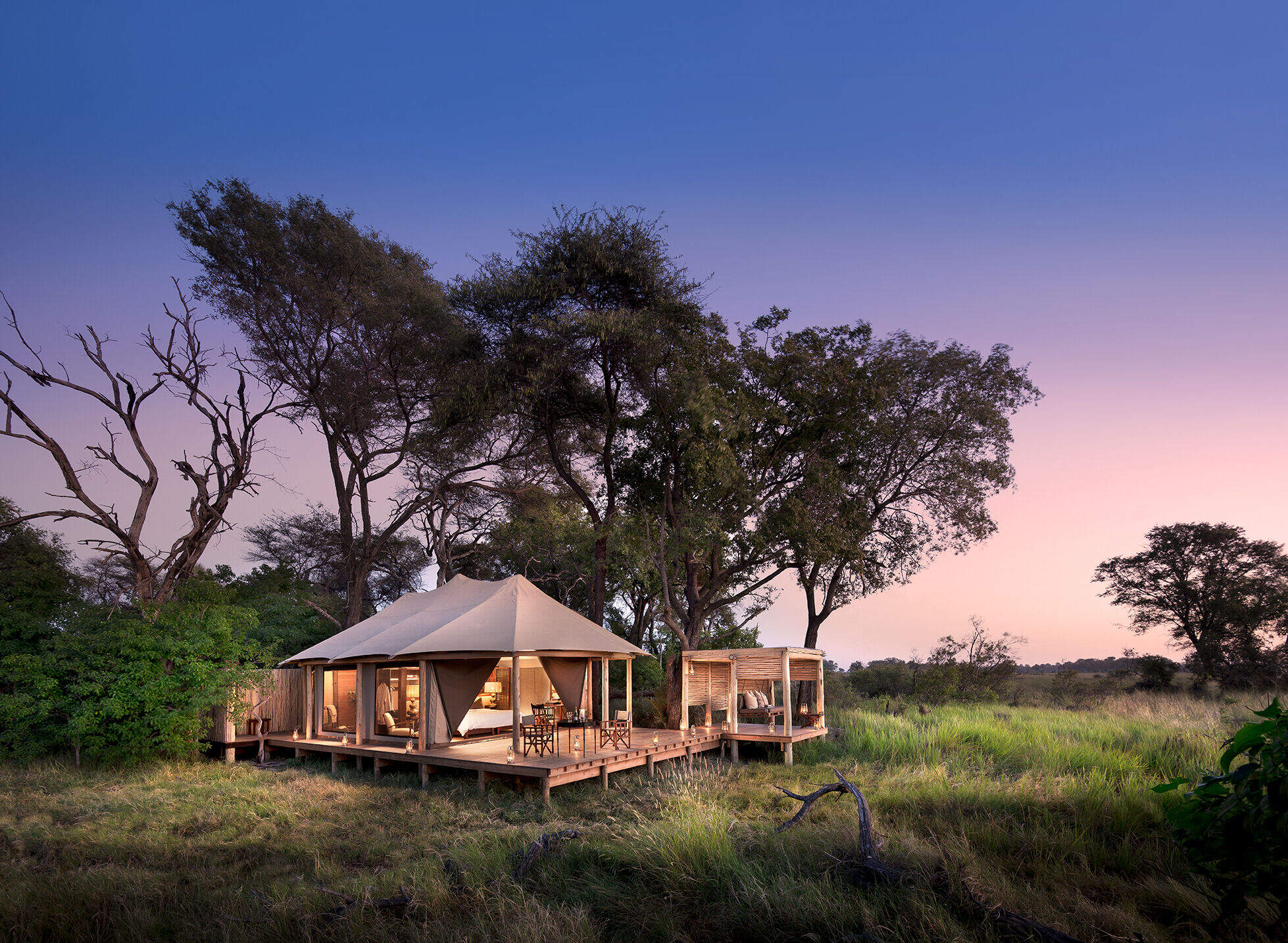
Nxabega Tented Camp
Nxabega offers a selection of both land- and water-based activities, plus very good guiding, food and service, but game viewing can be somewhat erratic.
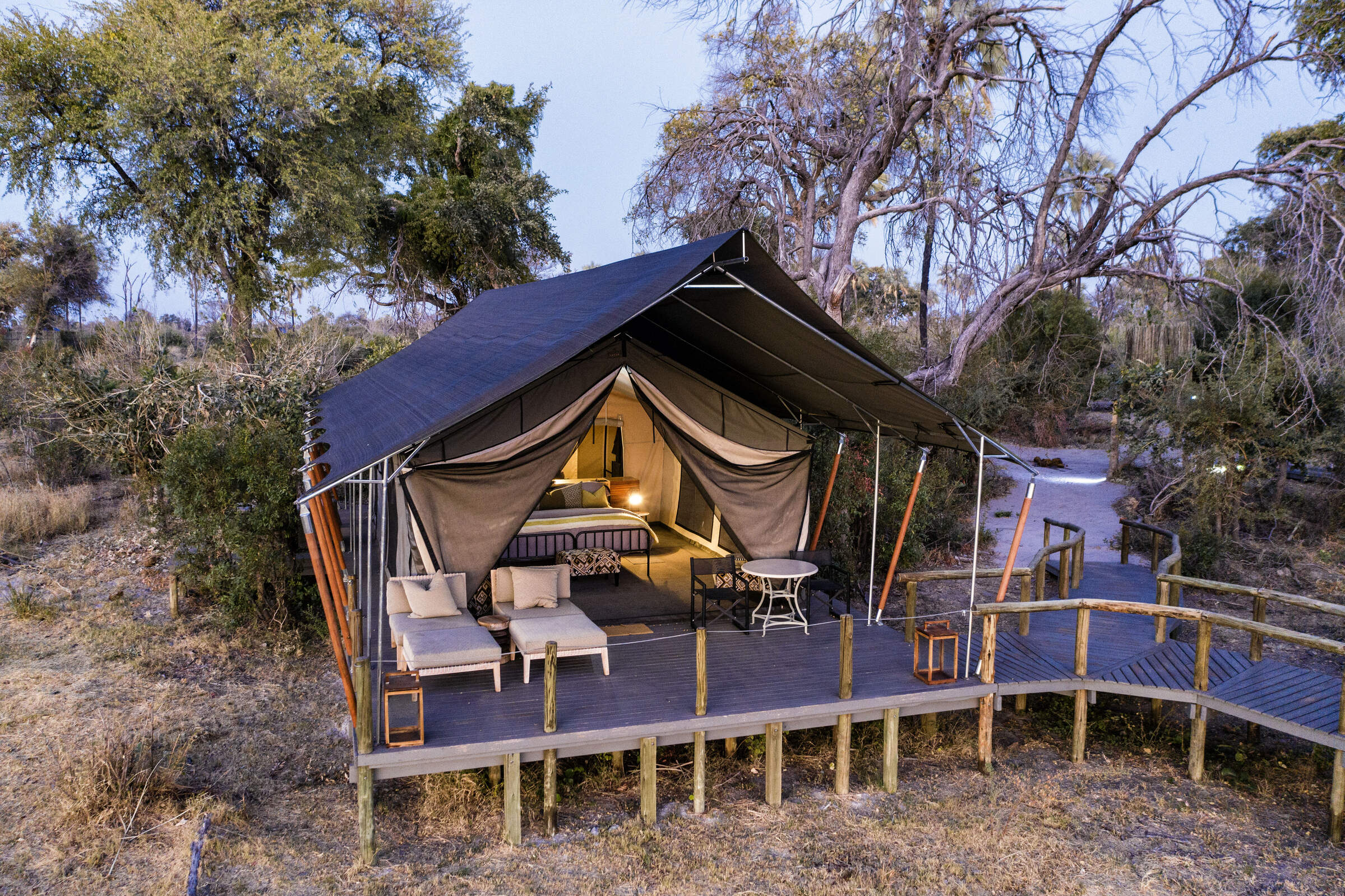
Gomoti Plains
Overlooking a tributary of the Gomoti River, Gomoti Plains Camp is a classically designed camp with very comfortable tents in a good game-viewing area.
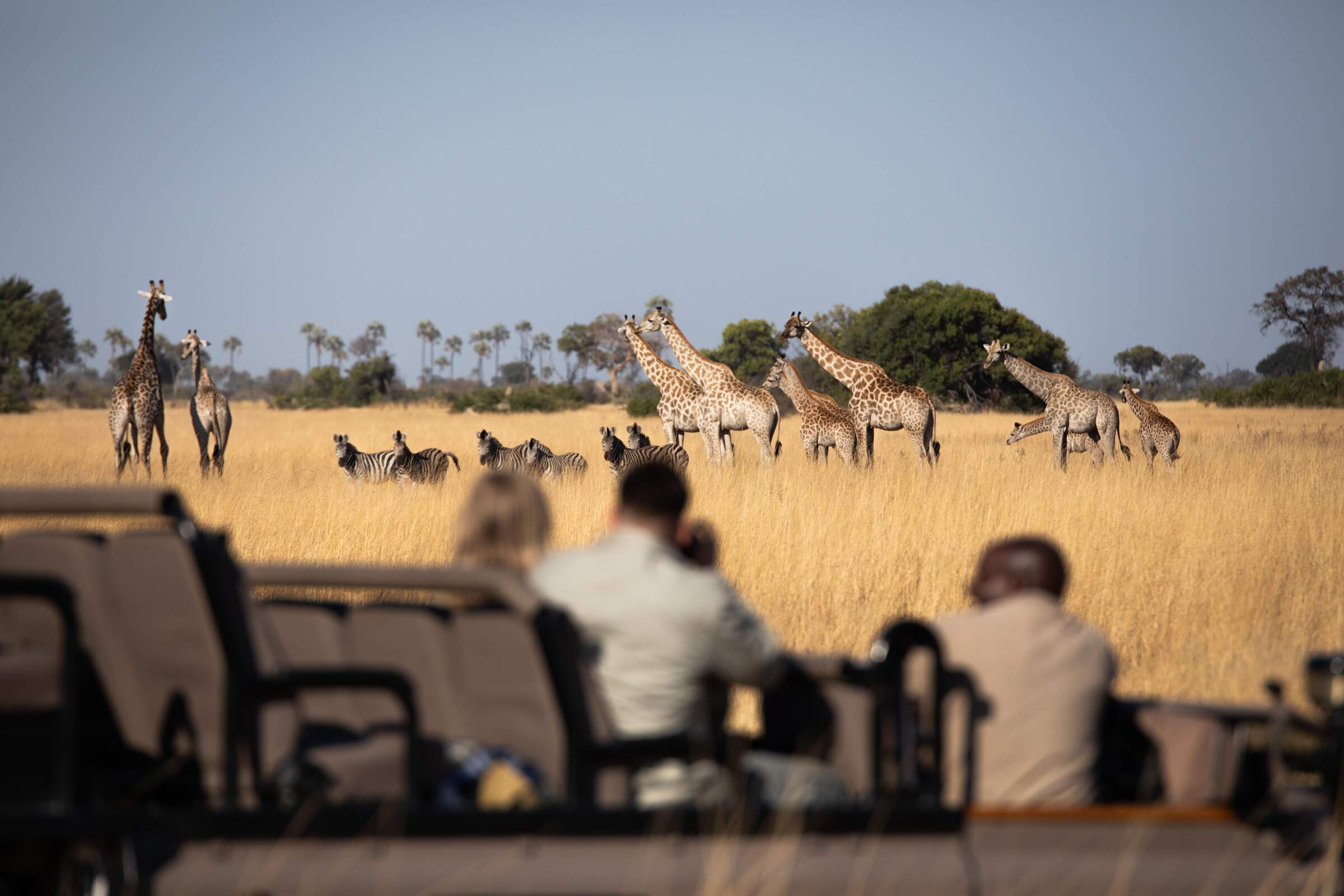
Tubu Tree Camp
A traditional tented camp with a distinctive tree-house feel, Tubu Tree offers some of the best game viewing in the Jao Reserve.
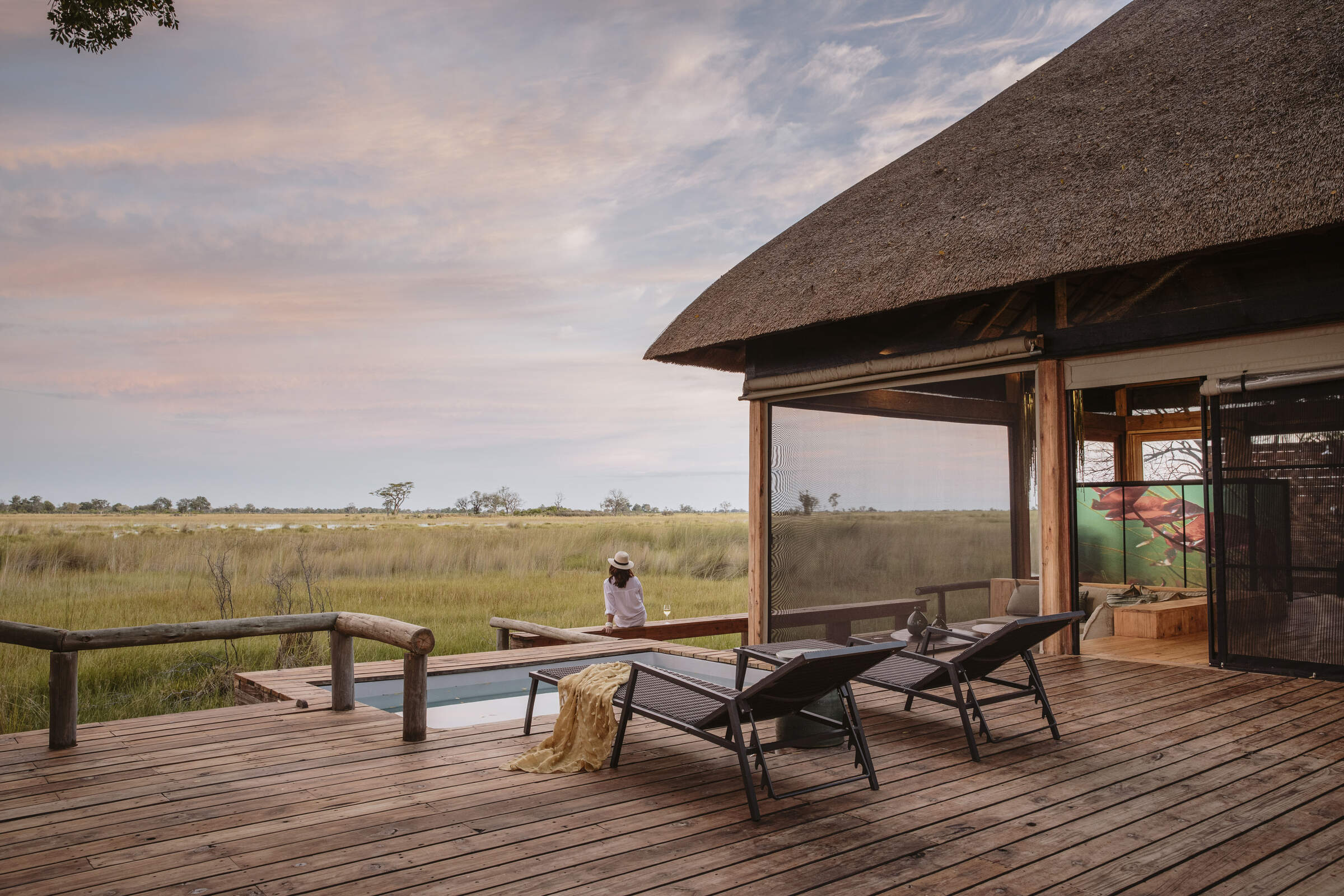
Vumbura Plains
Indulgently stylish and luxurious, Vumbura Plains offers superb game viewing and birding on an exceptionally varied private reserve.
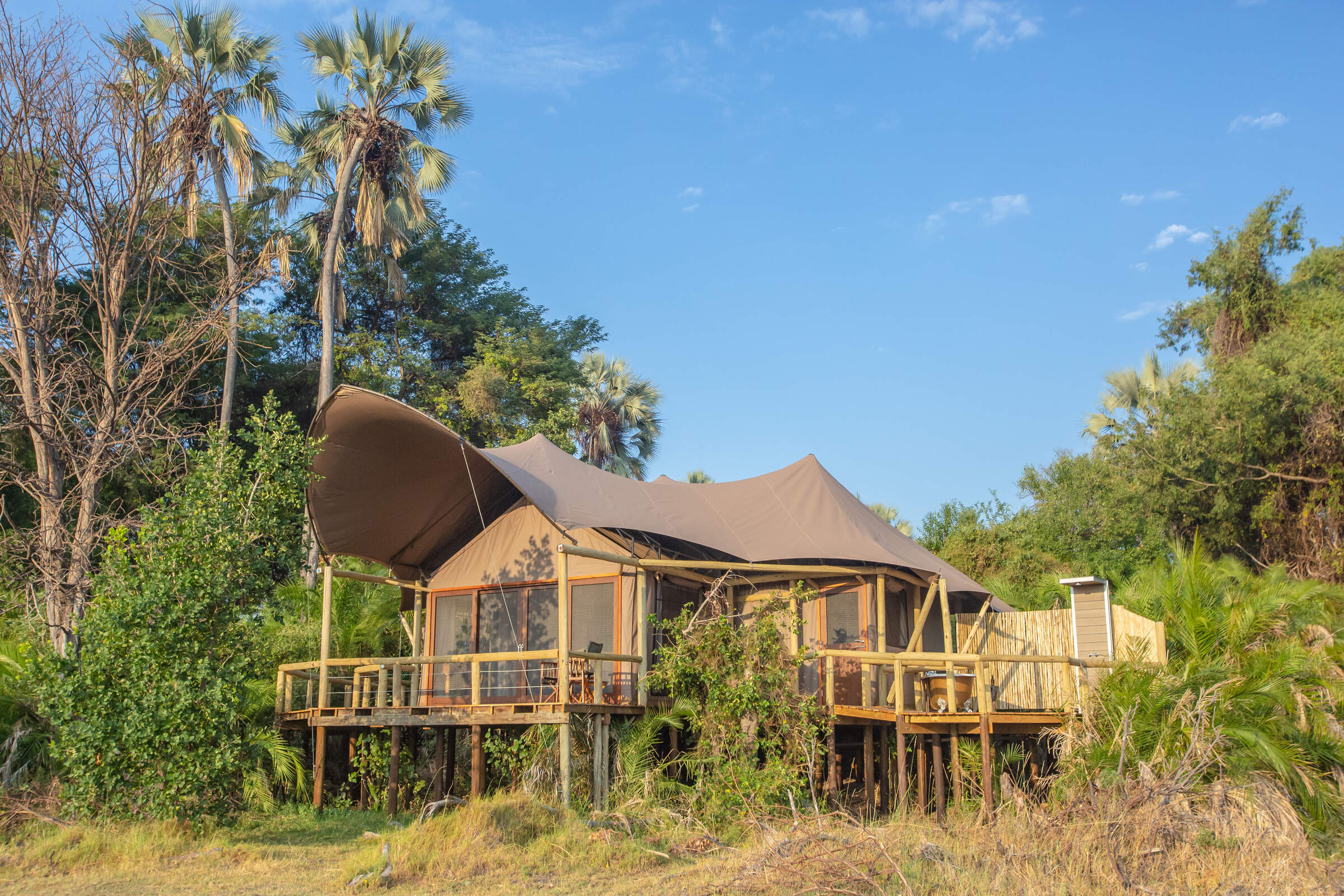
Jacana Camp
Jacana Camp is a small safari camp with an informal island feel; it is ideal for water-based activities in the Delta and offers excellent birdwatching.
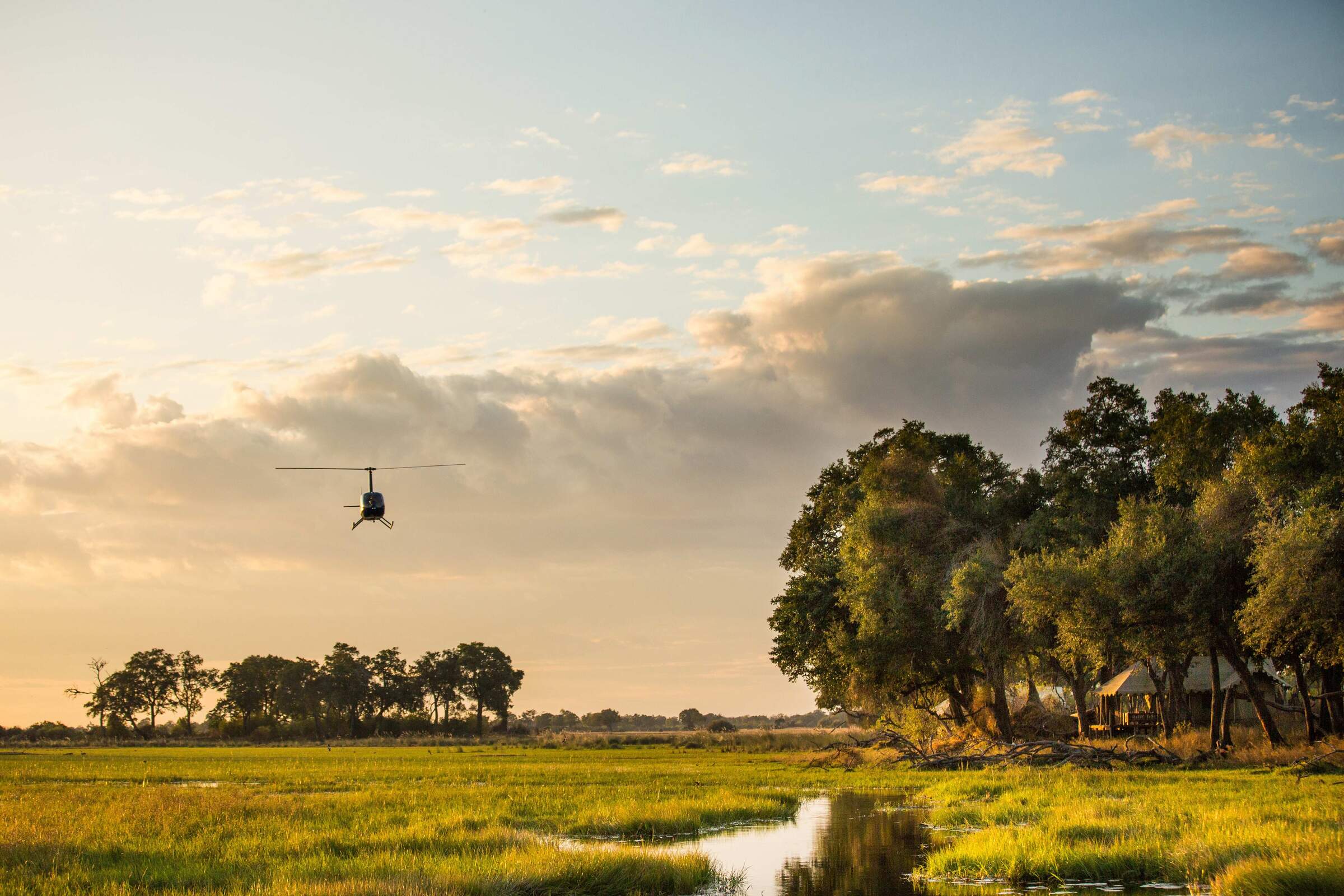
Duba Explorers Camp
Intimate and elegant, Duba Explorers Camp promises a firm safari focus in a remote corner of the Okavango, led by a team who value the highest guiding and hosting standards.
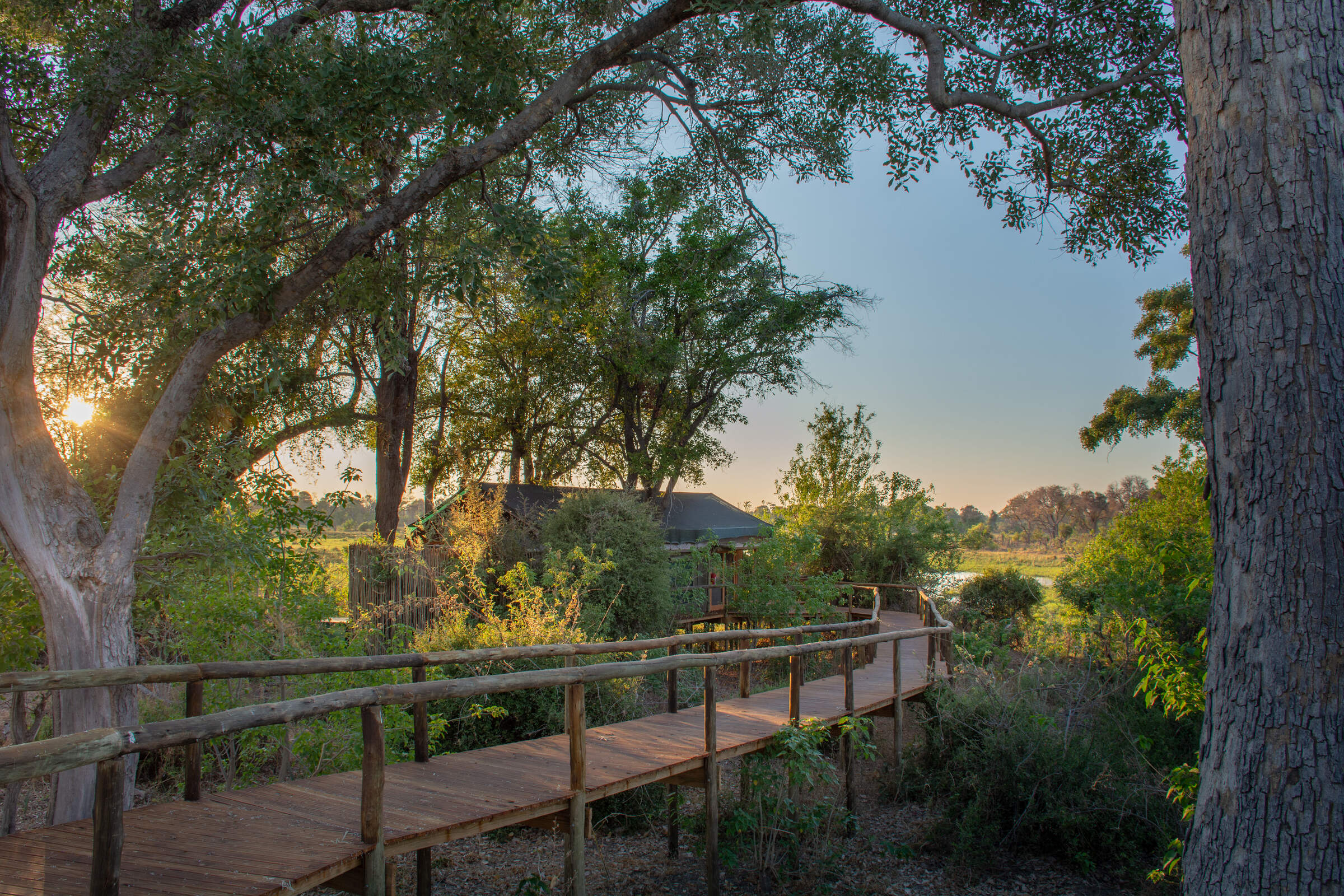
Mma Dinare
Beautifully located in a private concession overlooking the Gomoti River, the traditional Mma Dinare is very well-priced for the Okavango Delta.
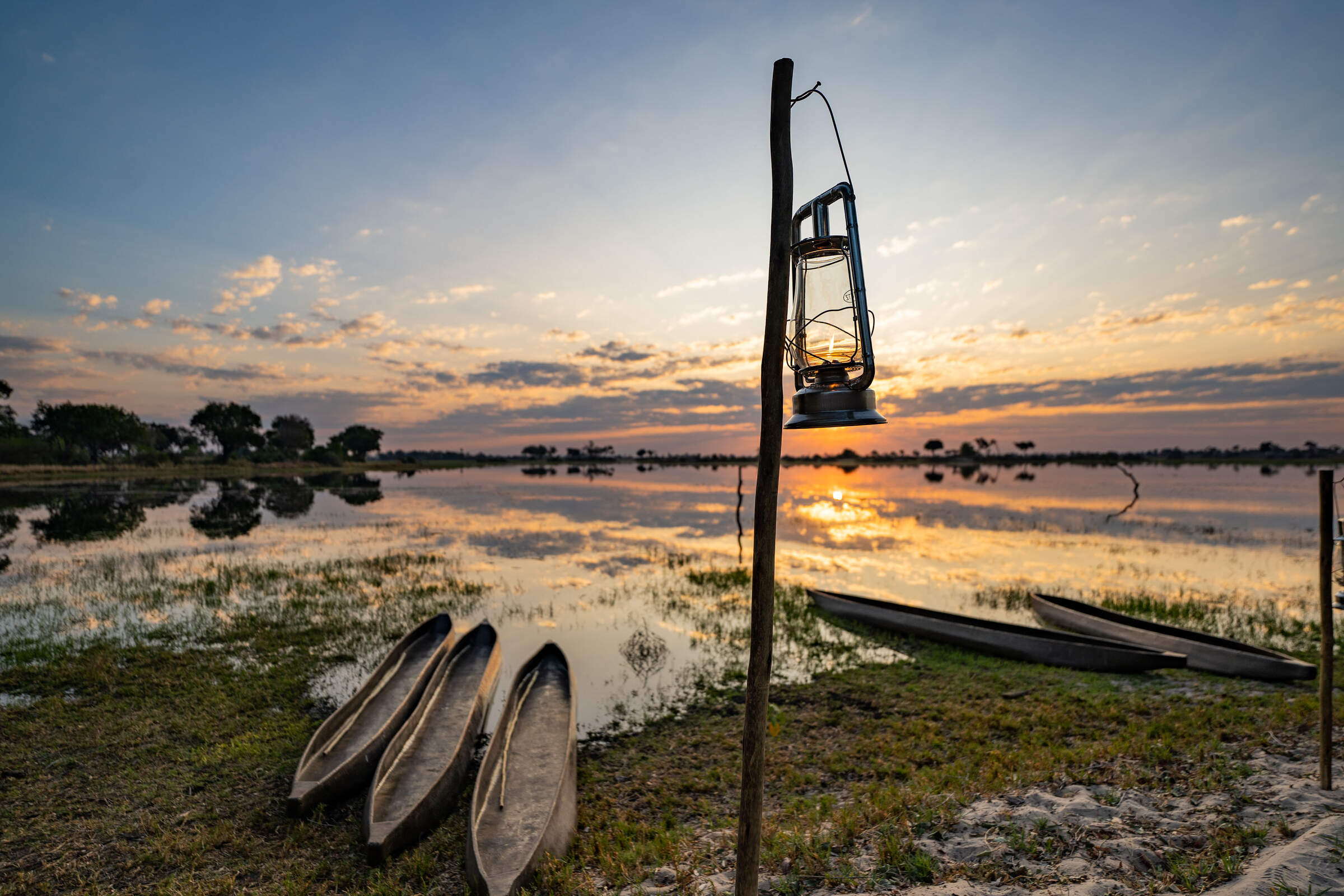
Pom Pom Camp
Amidst stunning Okavango Delta scenery, Pom Pom offers idyllic mokoro trips in season, great birdwatching, and increasingly good big-game sightings, especially leopards.
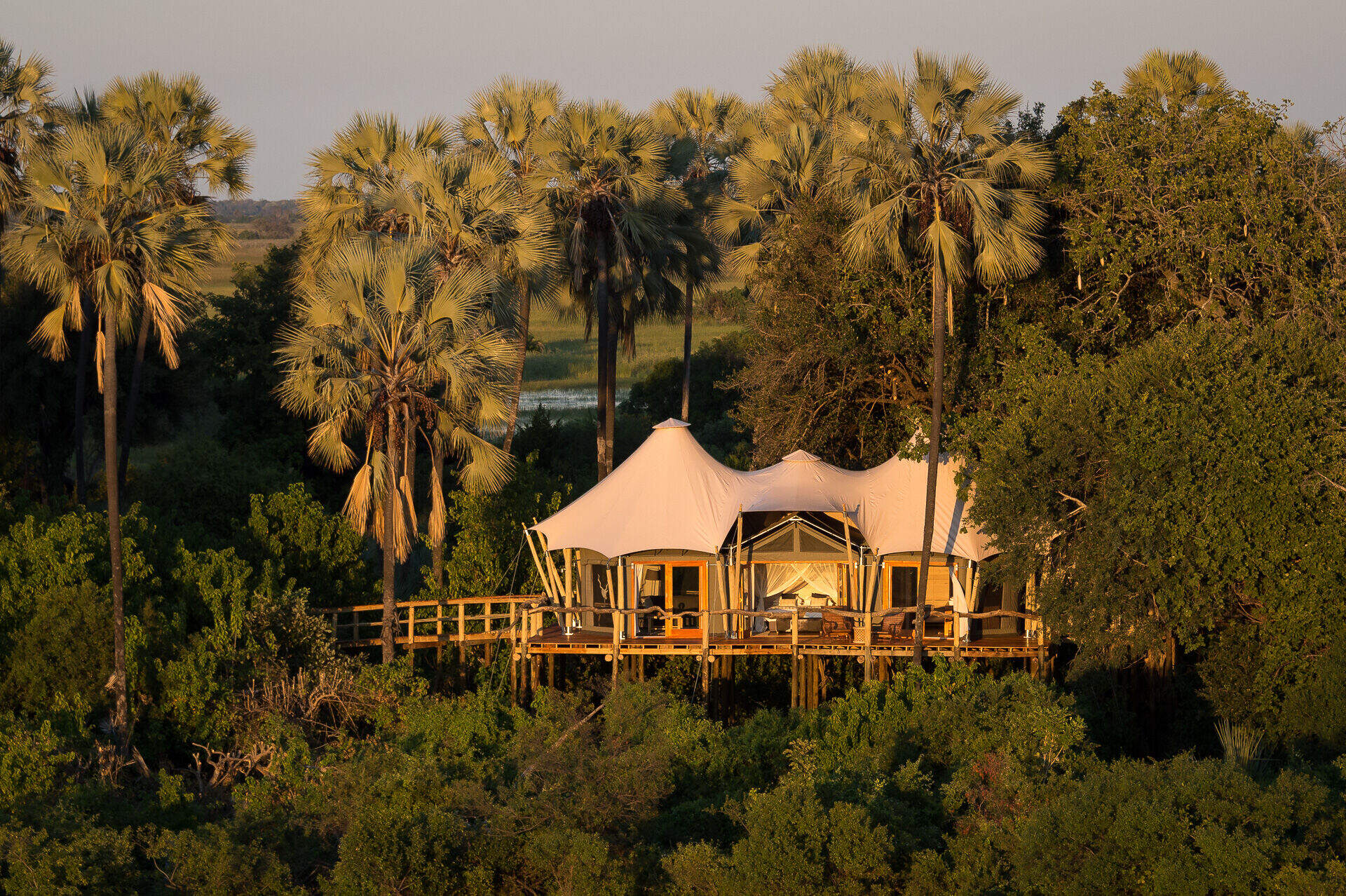
Kwetsani Camp
Deep in the Delta, overlooking a floodplain, Kwetsani Camp is a small, high-end camp with good access to areas for land and water-based activities.
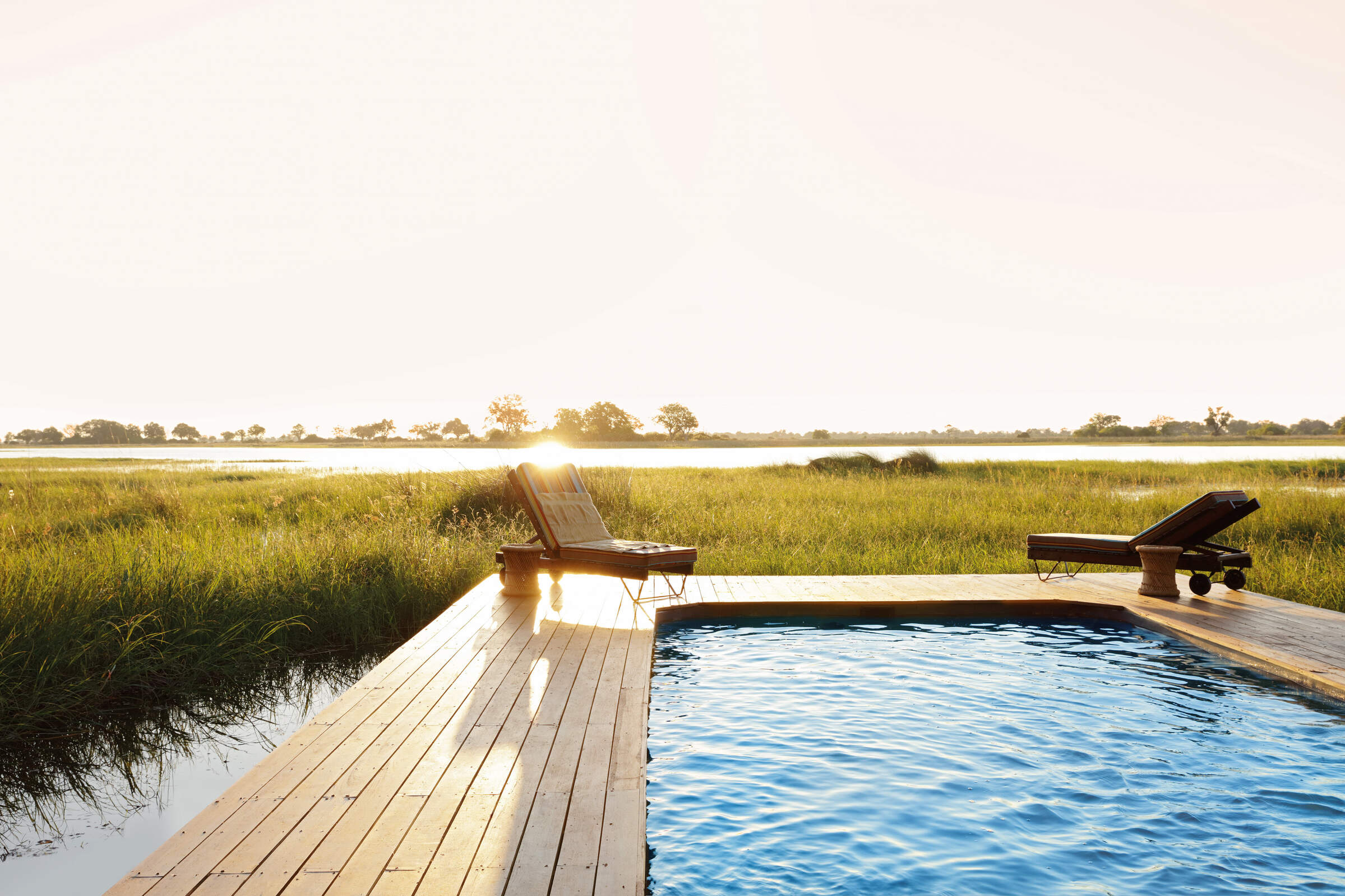
Mapula Lodge
For an affordable yet varied safari encompassing a range of eco-systems, the traditional Mapula Lodge takes a lot of beating.
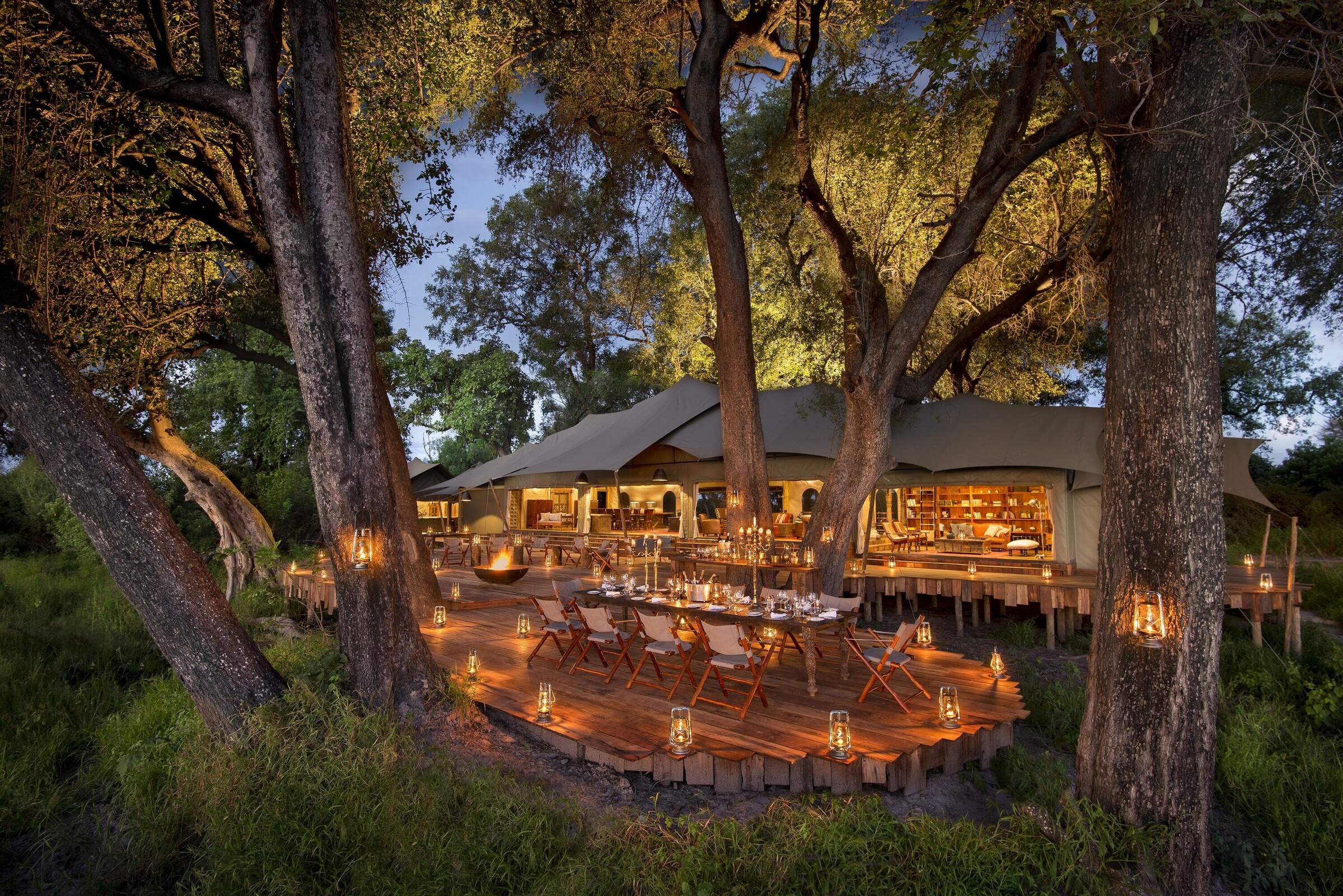
Duba Plains Camp
Duba Plains Camp is a traditional yet luxurious safari camp, best known for the thrilling lion behavior interaction that is often see during the day.
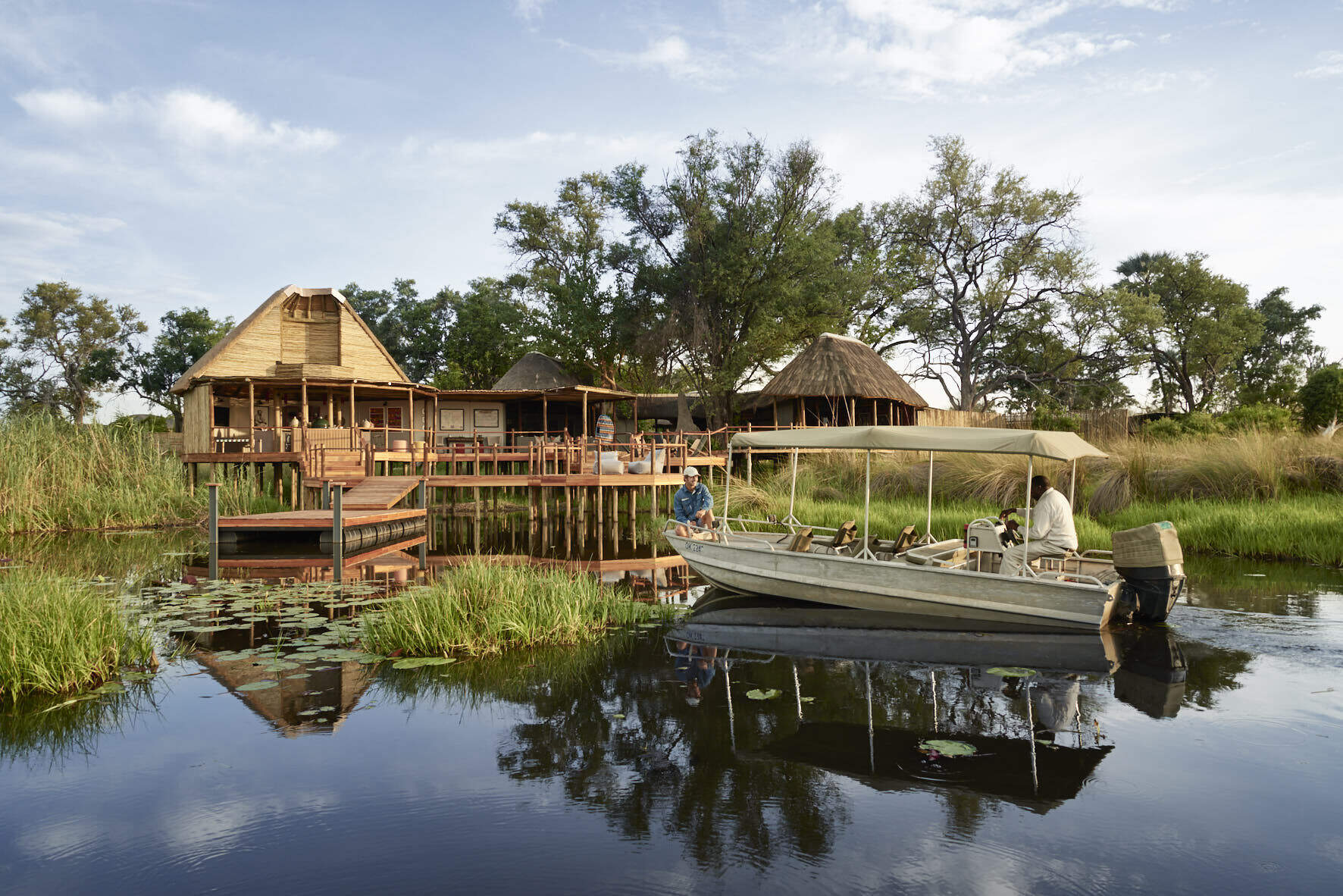
Baines' Camp
Baines' Camp is a well-run, intimate camp in a pretty part of the Okavango, offering a range of activities and the option to spend a morning walking with elephants.
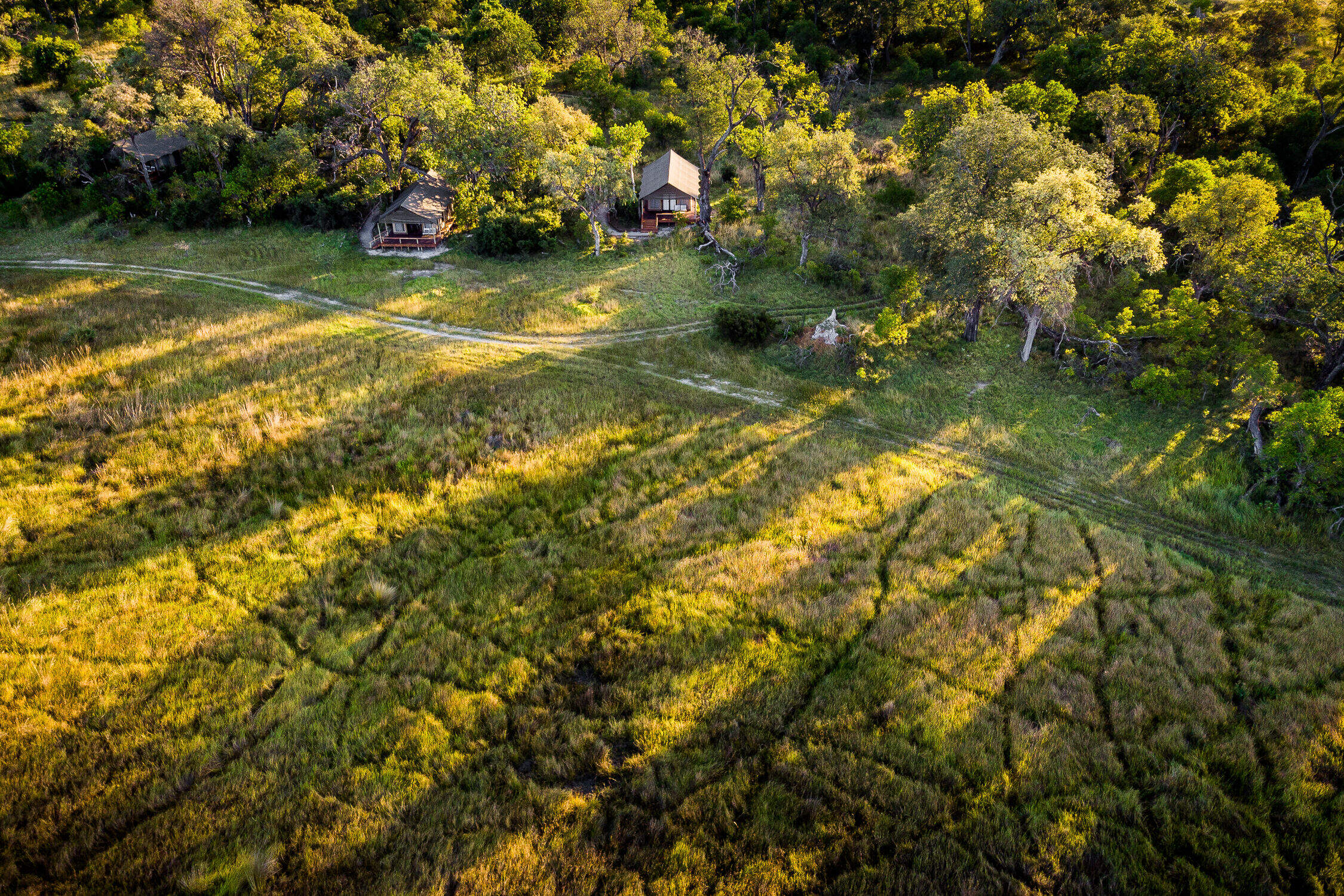
Stanley's Camp
In a private concession south of Moremi Game Reserve, Stanley's Camp offers 4WD game drives, seasonal water activities and a superb elephant interaction.
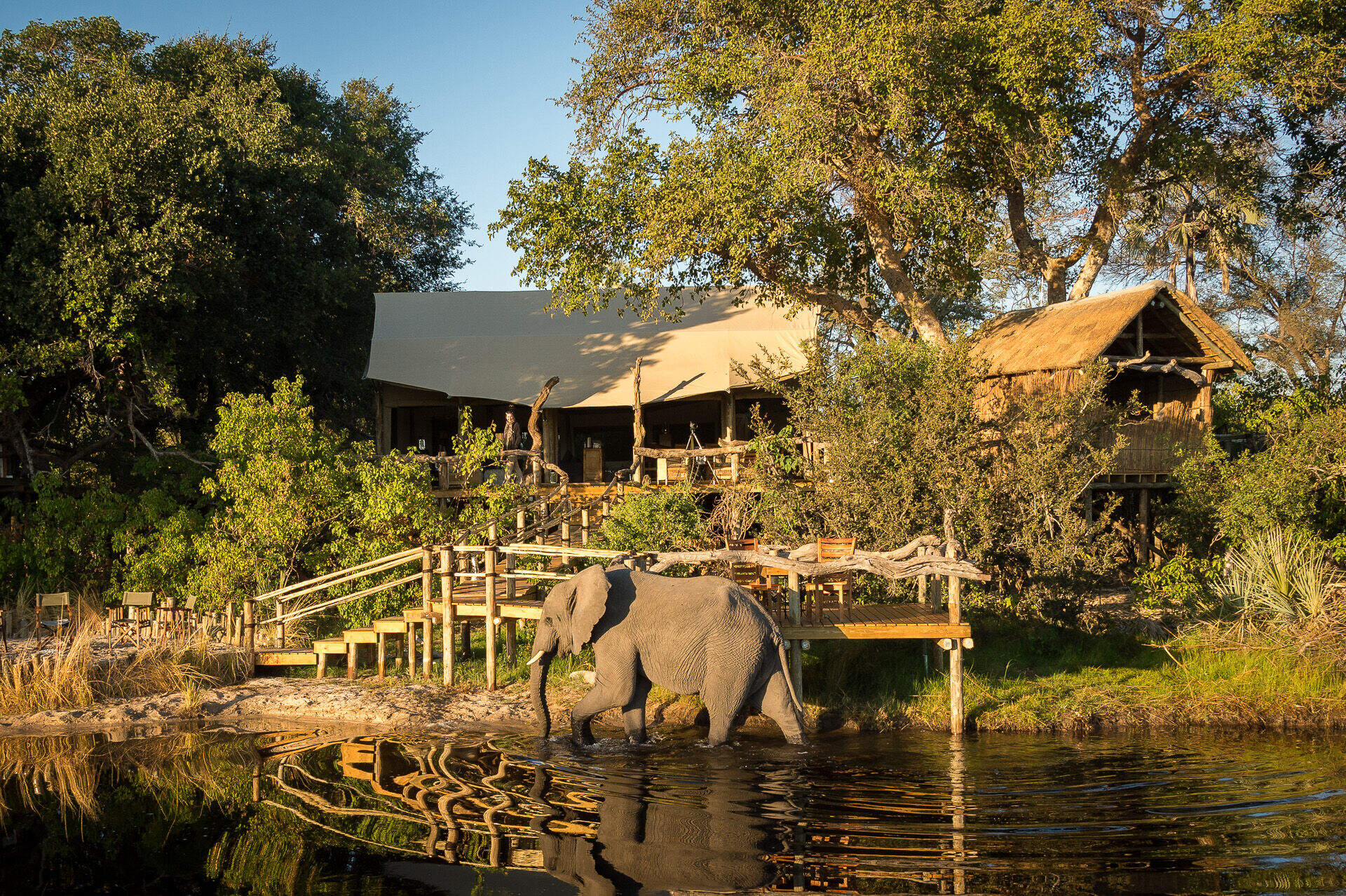
Little Tubu
Little Tubu is a new, traditional camp with just three tented chalets and a distinctive tree-house feel. The areas around it can be explored by water and land-based activities year round.
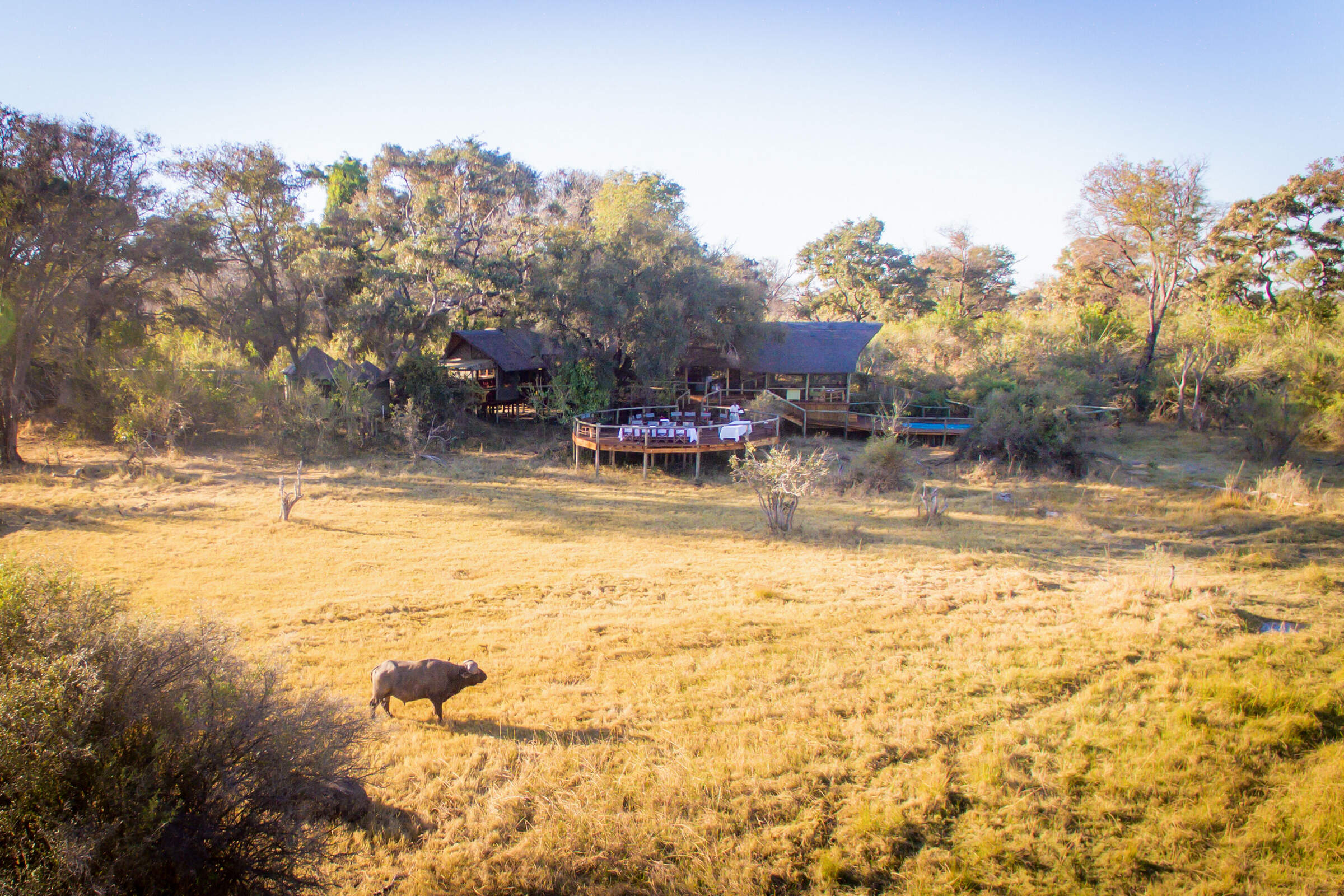
Rra Dinare
Located in a private concession in the southern reaches of the Okavango Delta, overlooking the Gomoti River, Rra Dinare is a traditional-style, well-priced camp.
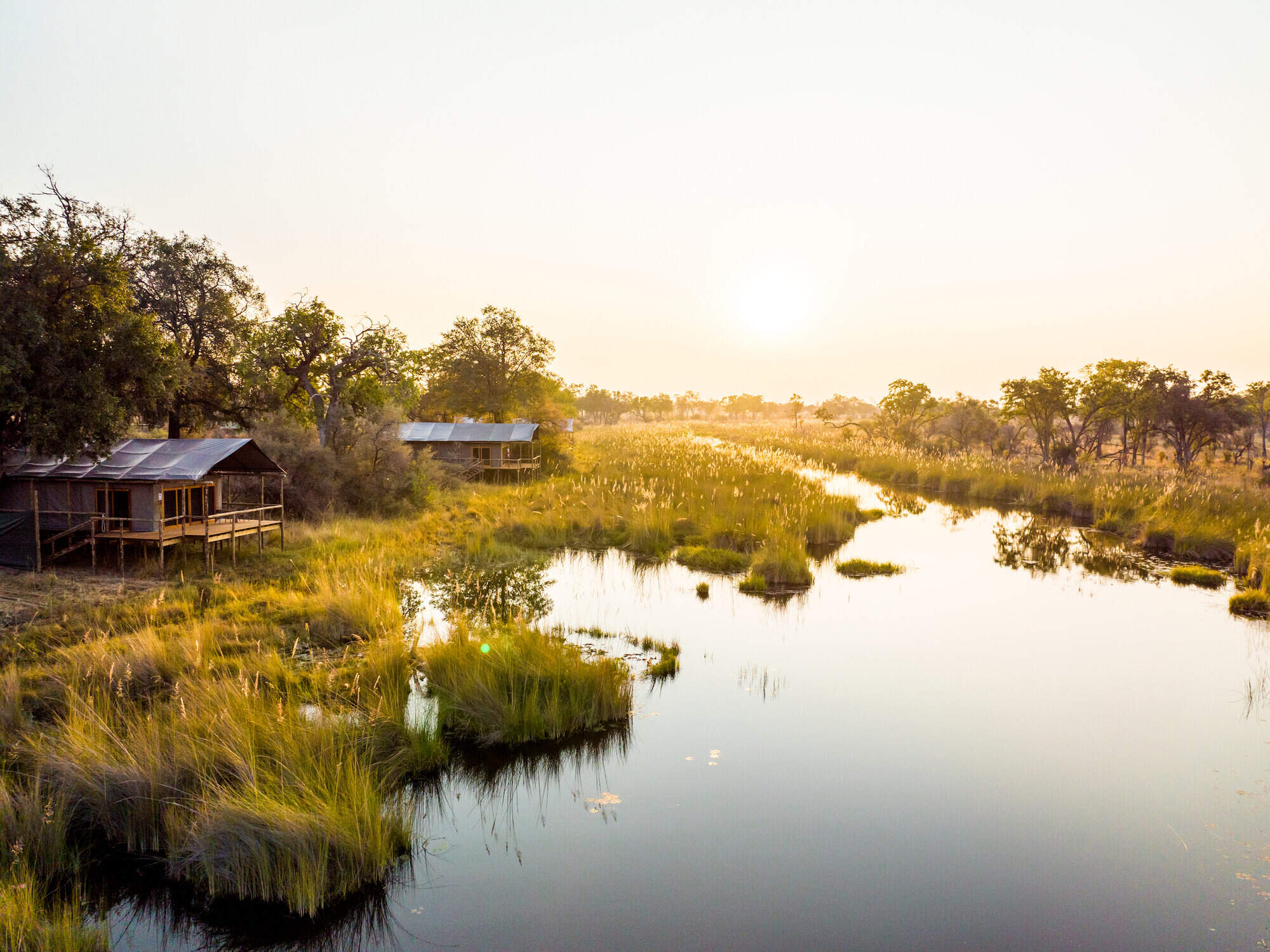
4 Rivers
4 Rivers is a new camp in a previously in accessible area of the excellent Kwara concession.
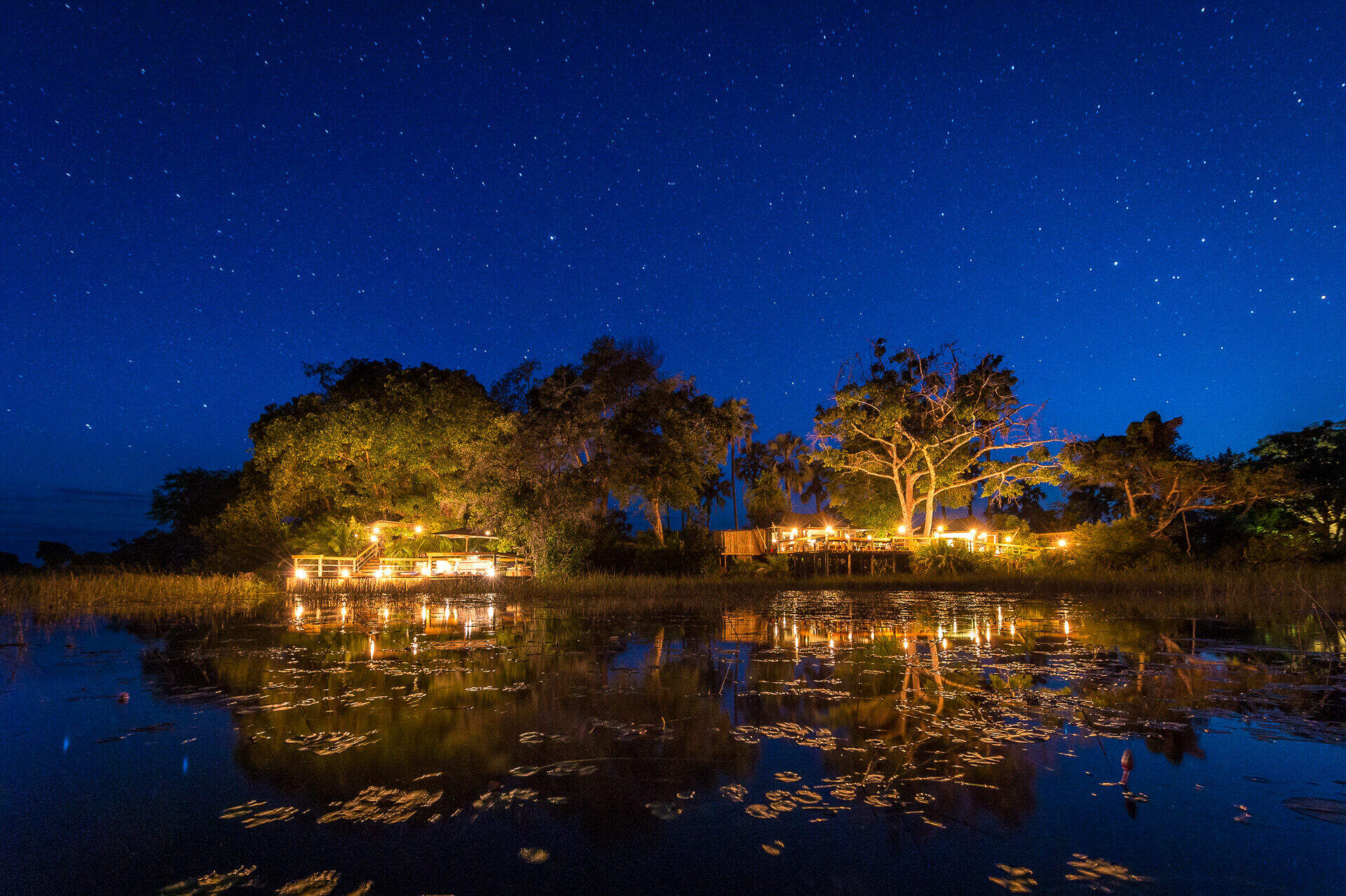
Pelo Camp
In a pristine wilderness environment deep in the Okavango Delta, the seasonal Pelo Camp is tented yet comfortable, with activities focusing on excursions by mokoro.
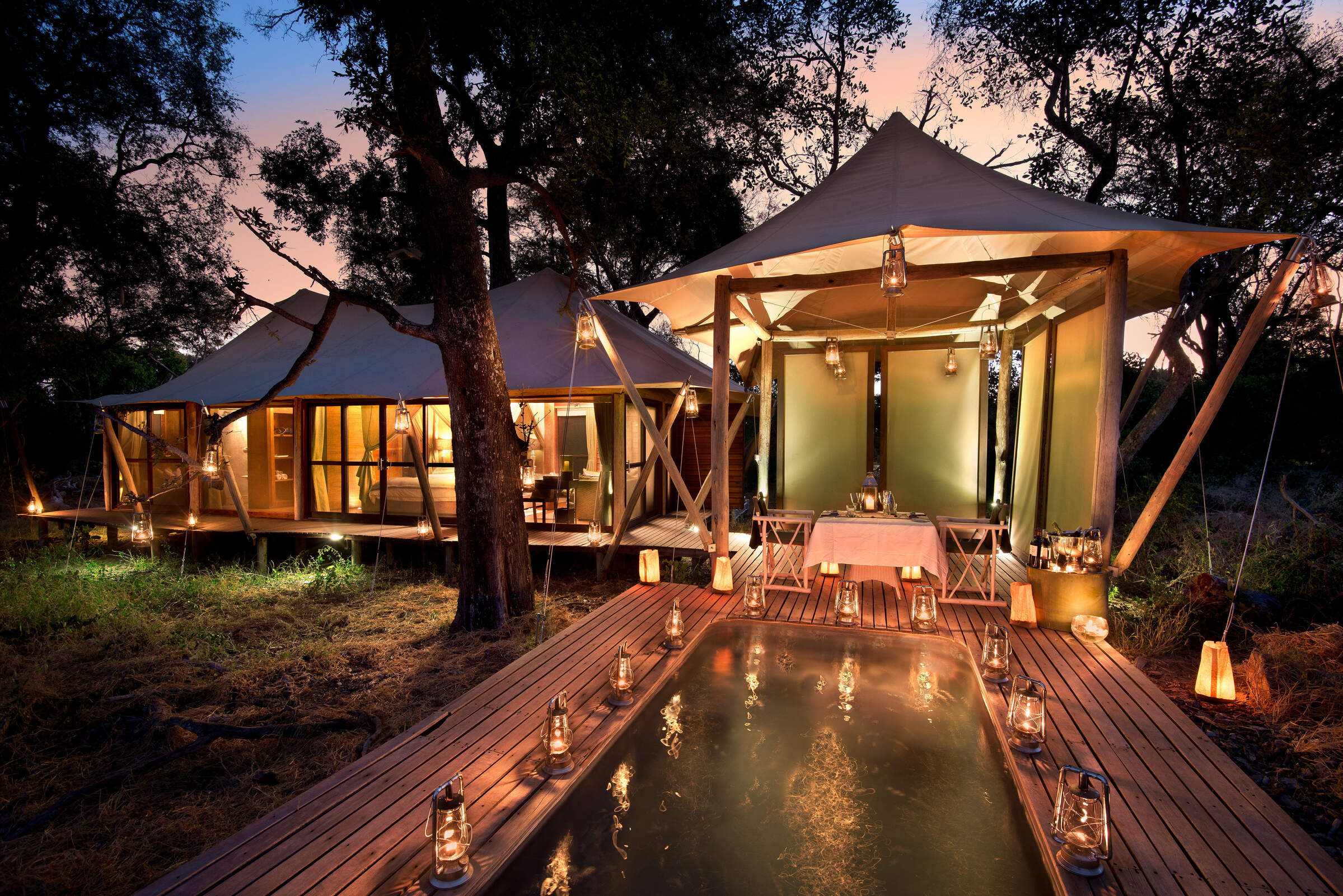
Xaranna
Xaranna is a plush tented camp amongst the idyllic waterways and islands of the Delta. Each air-conditioned tent has a plunge pool. Water activities and pampering are the focus here.
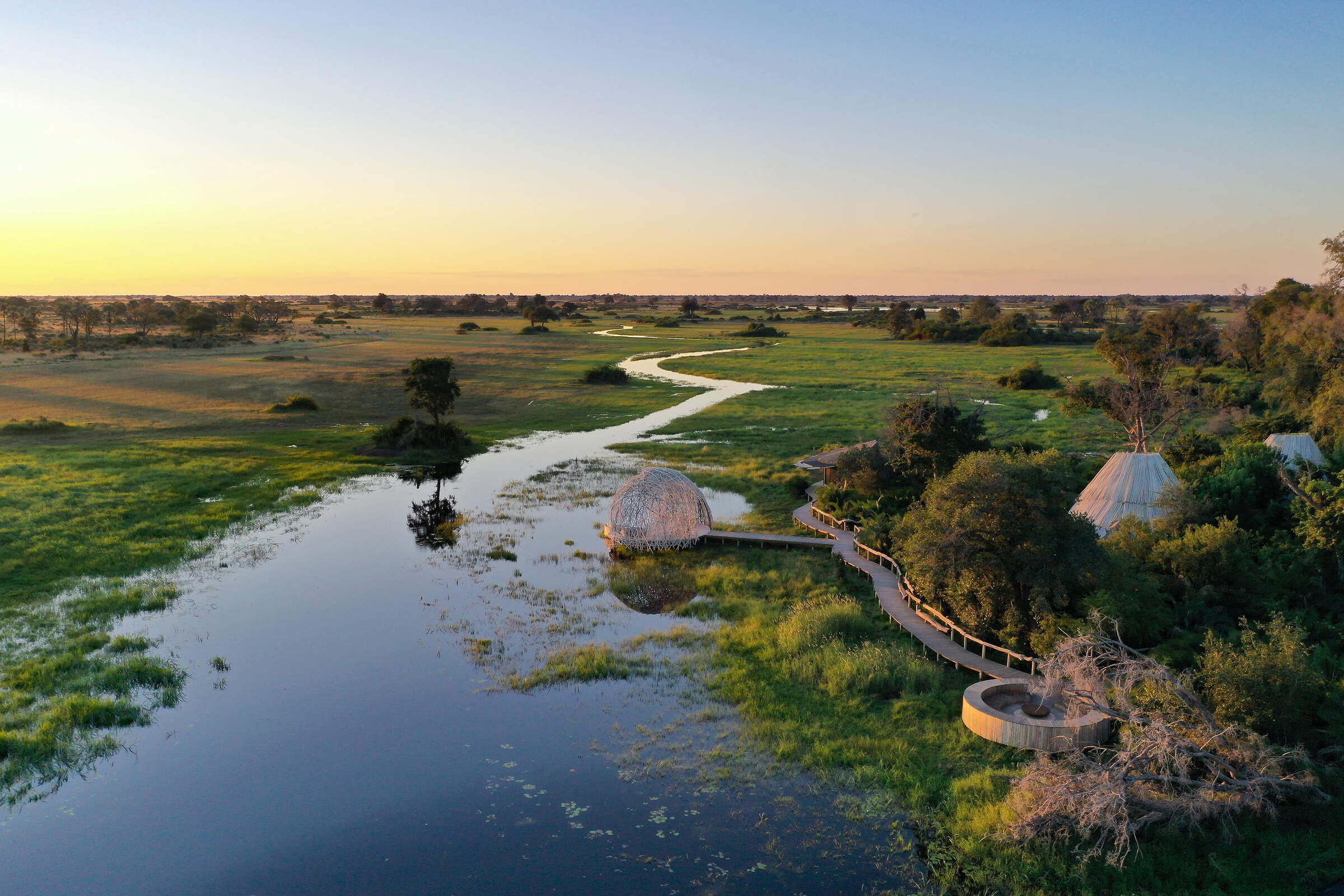
Jao Camp
In a beautiful area with fantastic water activities, Jao combines an idyllic location with high levels of luxury and service, and a top-end spa.
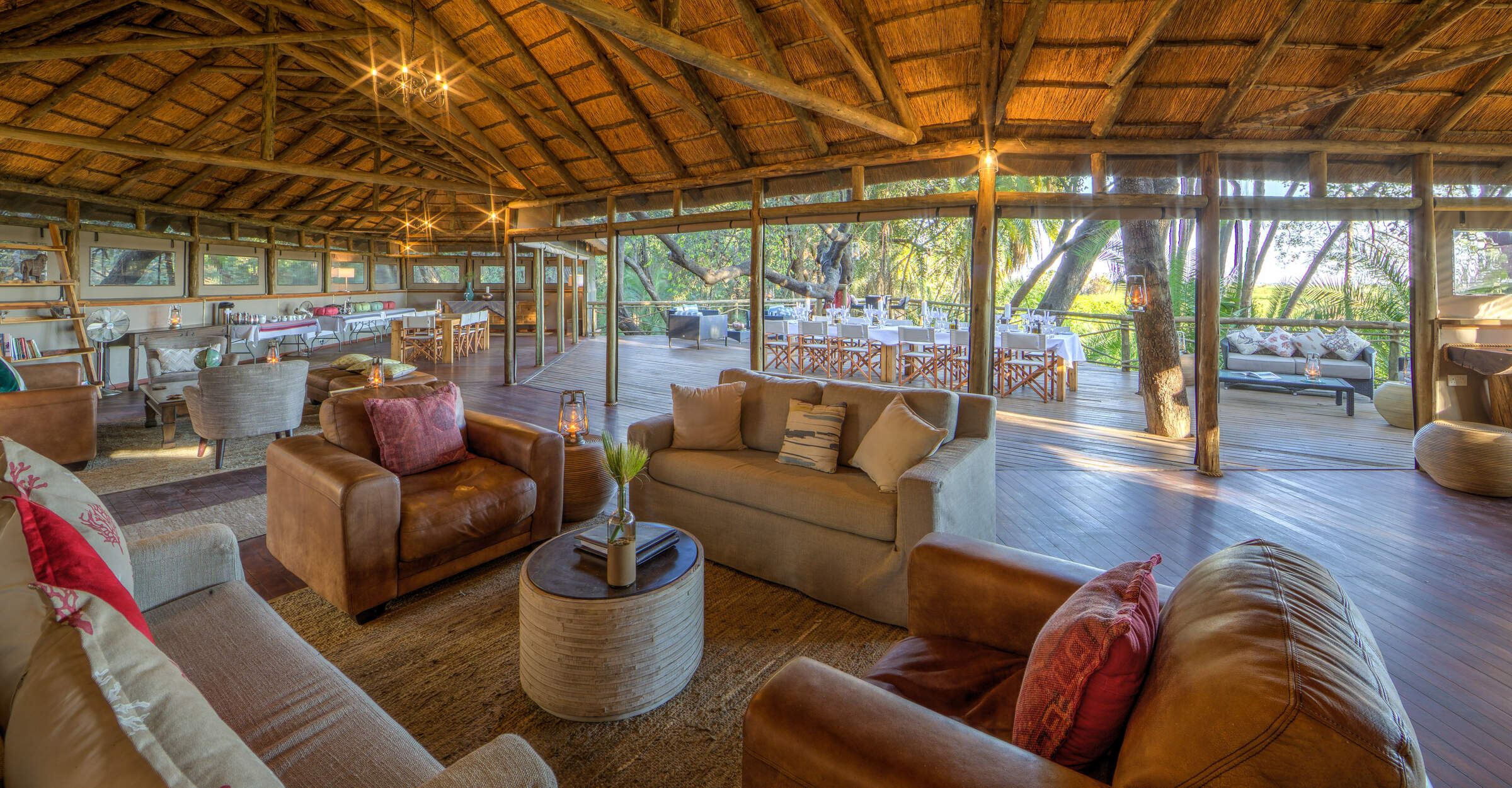
Setari Camp
Setari Camp stands on an island dotted with palm trees, close to the base of the Okavango's 'Panhandle", offering primarily water-based activities.
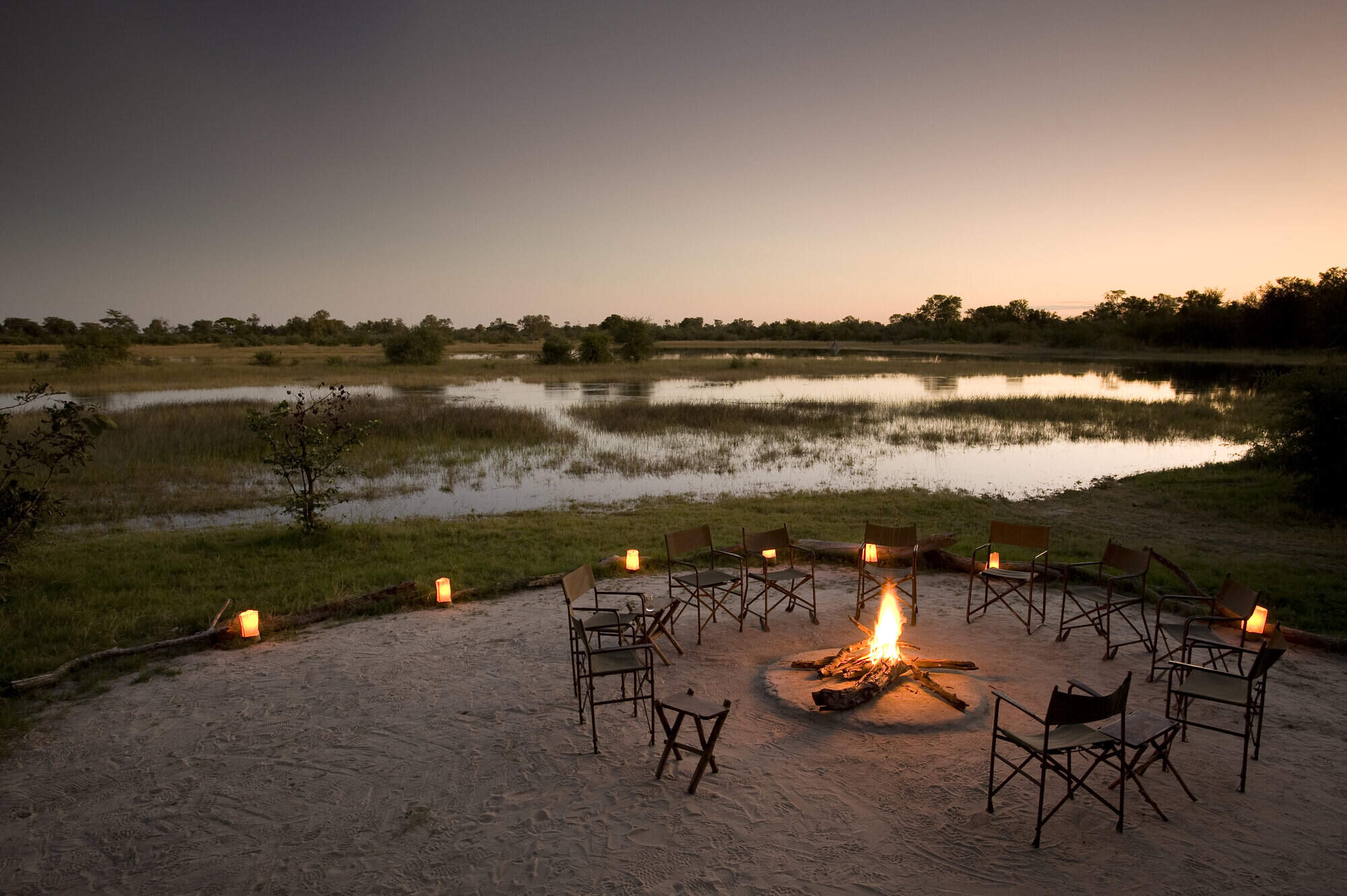
Okavango Explorers
The traditional, tented Okavango Explorers Camp offers a mix of walking, canoeing and game drives led by great guides in a wildlife-rich area.
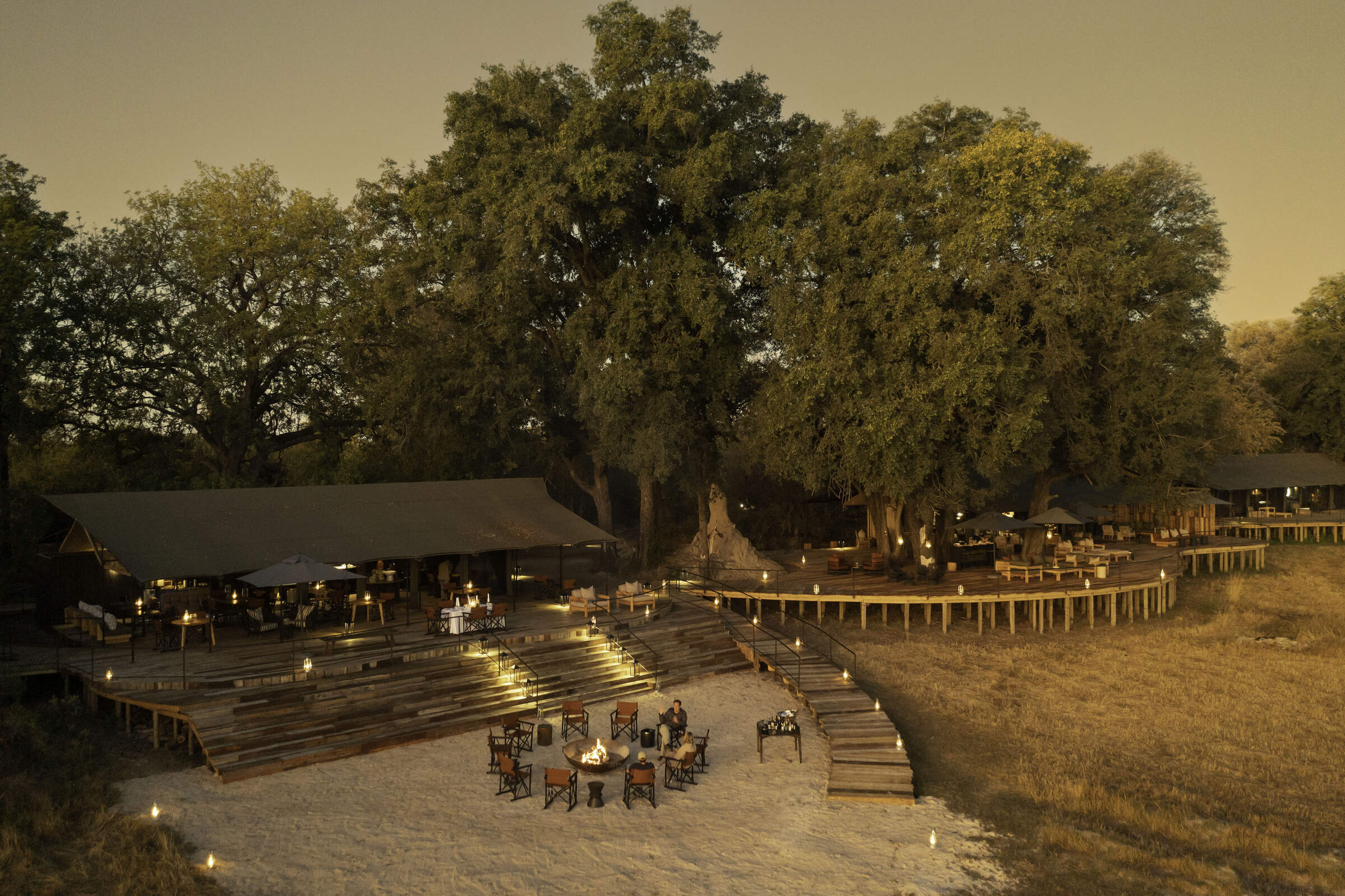
Kiri Camp
Kiri Camp is the latest Okavango offering from the excellent team behind Machaba. In an exciting new location in the heart of the Delta we cannot wait to visit this new camp.
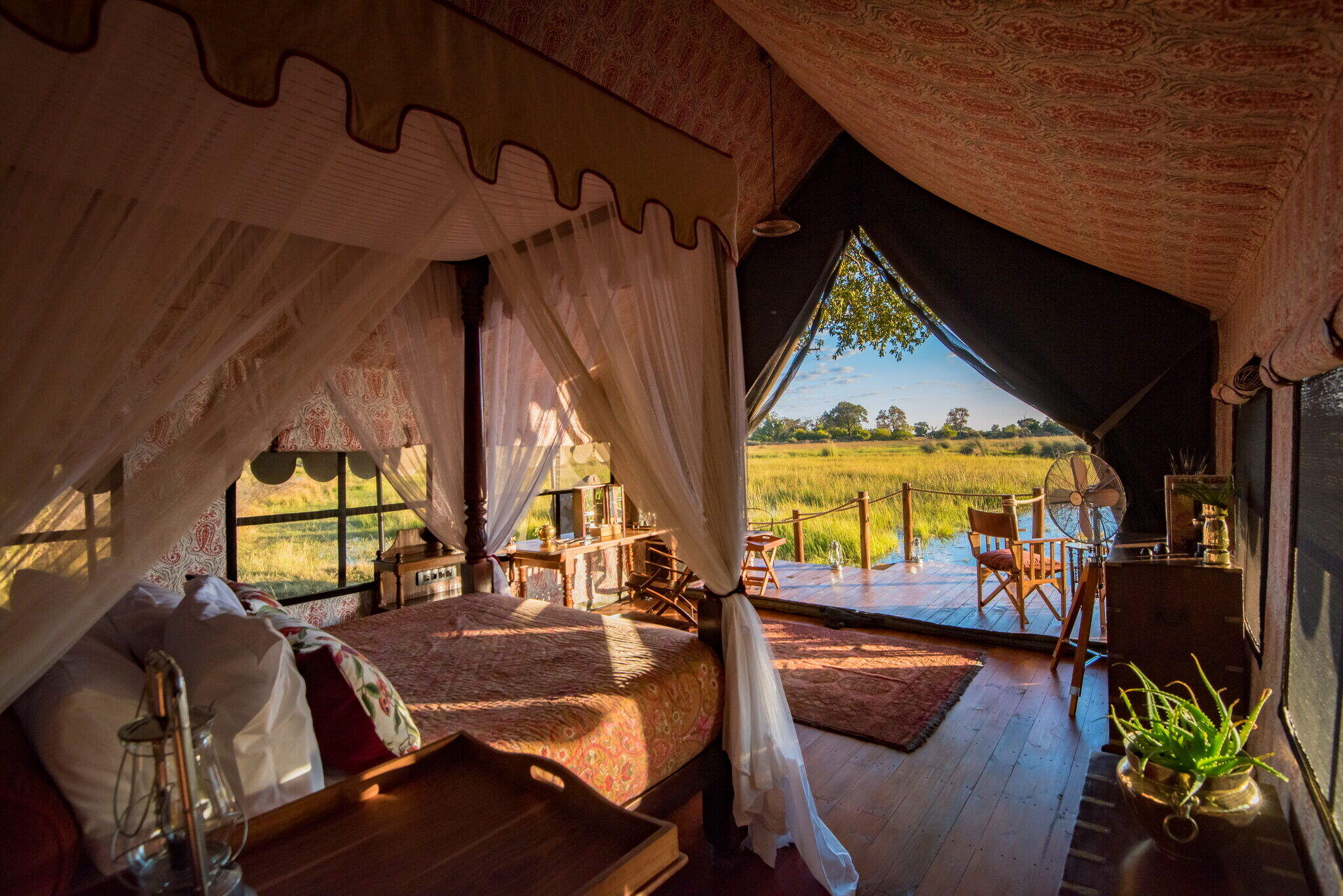
Duke’s Camp
On a remote island within a large concession, the romantic Duke's Camp and smaller Duke’s East are nestled among mature trees overlooking wildlife-rich plains and waterways of the Okavango.
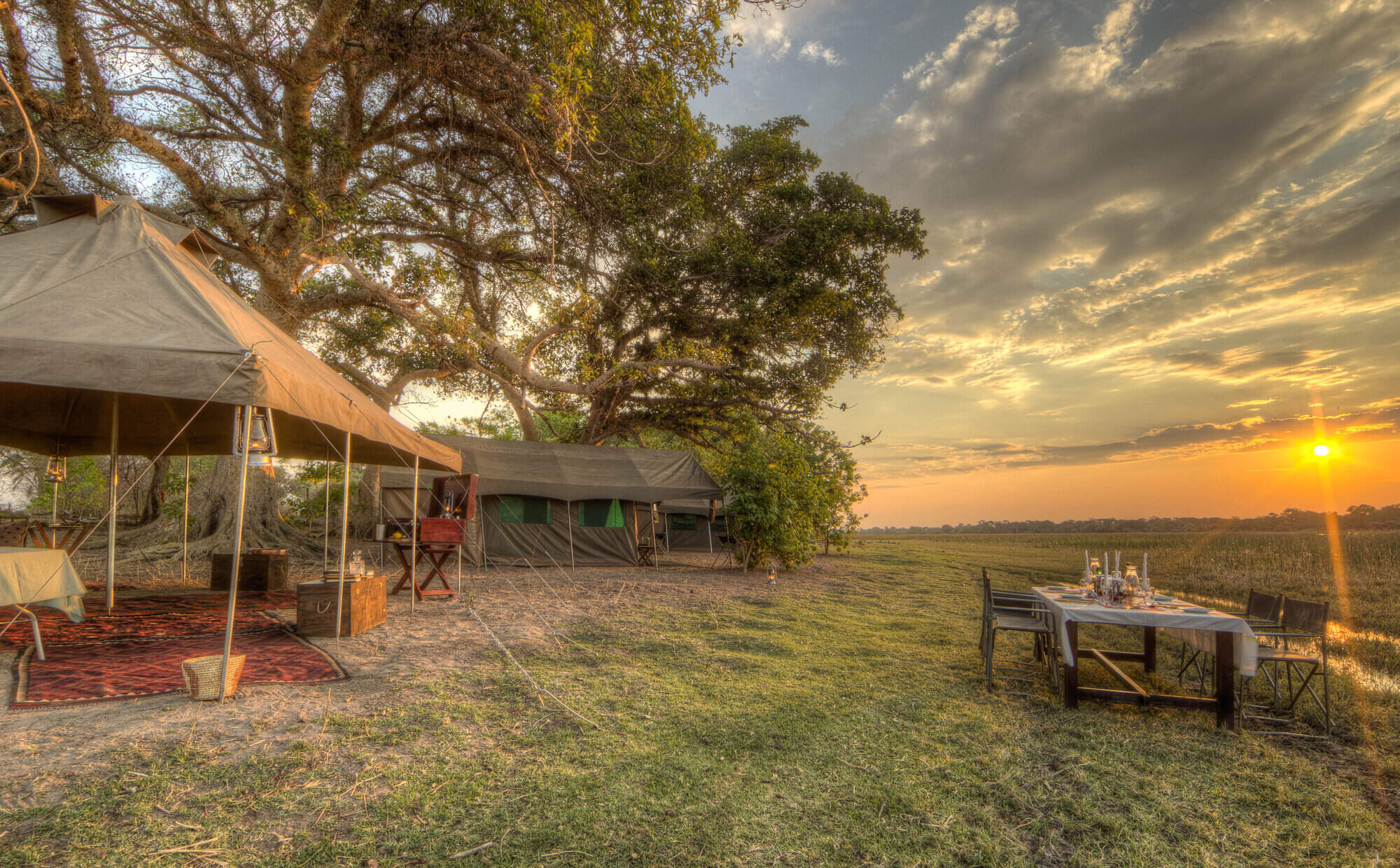
Okavango Walking Safari
The Okavango Delta Walking Safari camps in a secluded Okavango Delta Reserve where there are few roads; the ideal location for a walking trail led by an expert guide.
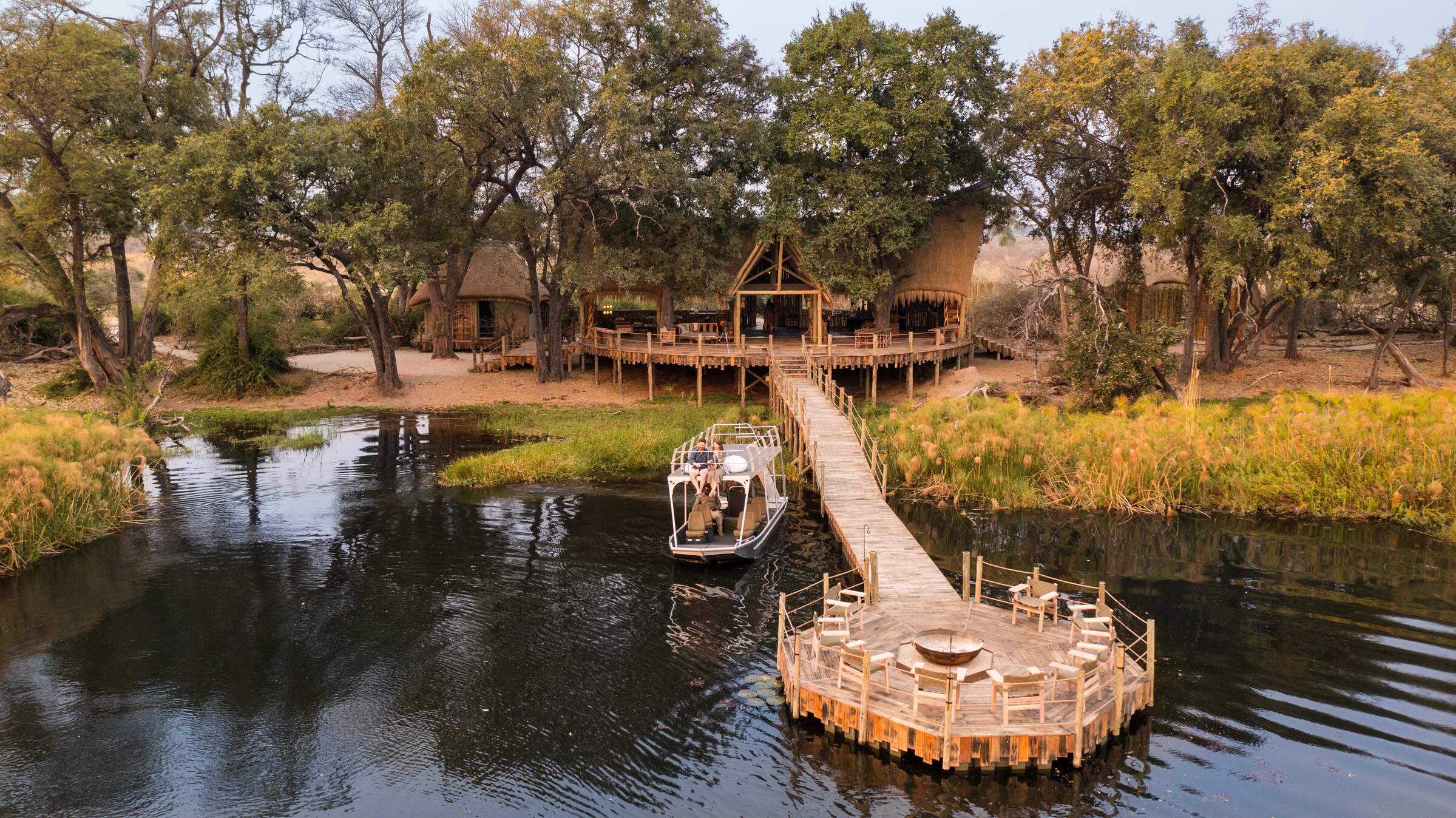
Sitatunga Island Camp
Tucked away in a pristine corner of the Okavango Delta, the exclusive Sitatunga Private Island is a water-based camp offering boating, mokoro trips and fishing.
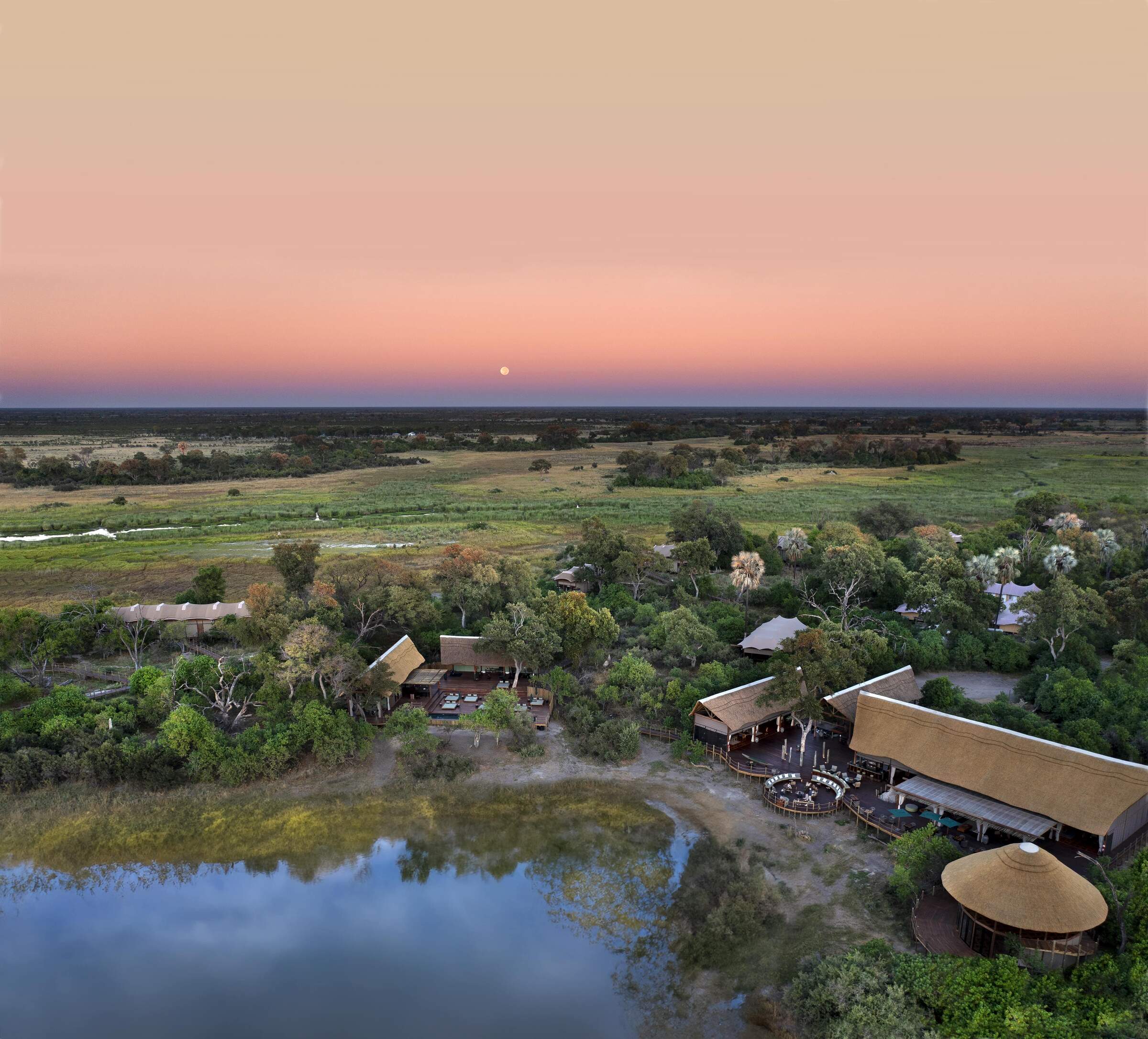
Atzaro Okavango
With a high level of tasteful luxury promised at Atzaro, we think it will be best suited to travellers seeking a touch of pampering alongside their safari.
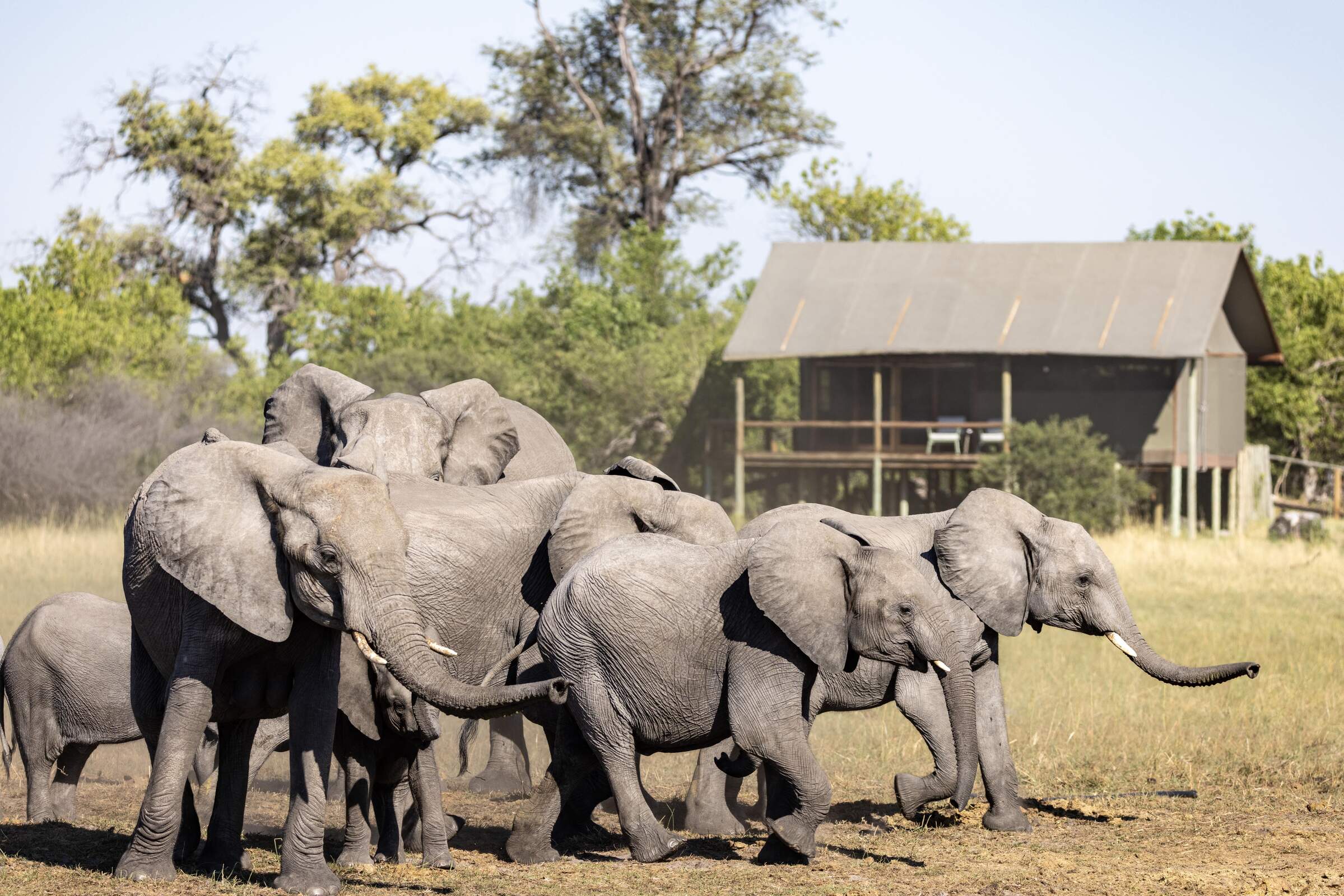
Mokolwane
Deep in the heart of the Okavango, the simple Mokolwane focuses on wildlife viewing in a large, untouched area.
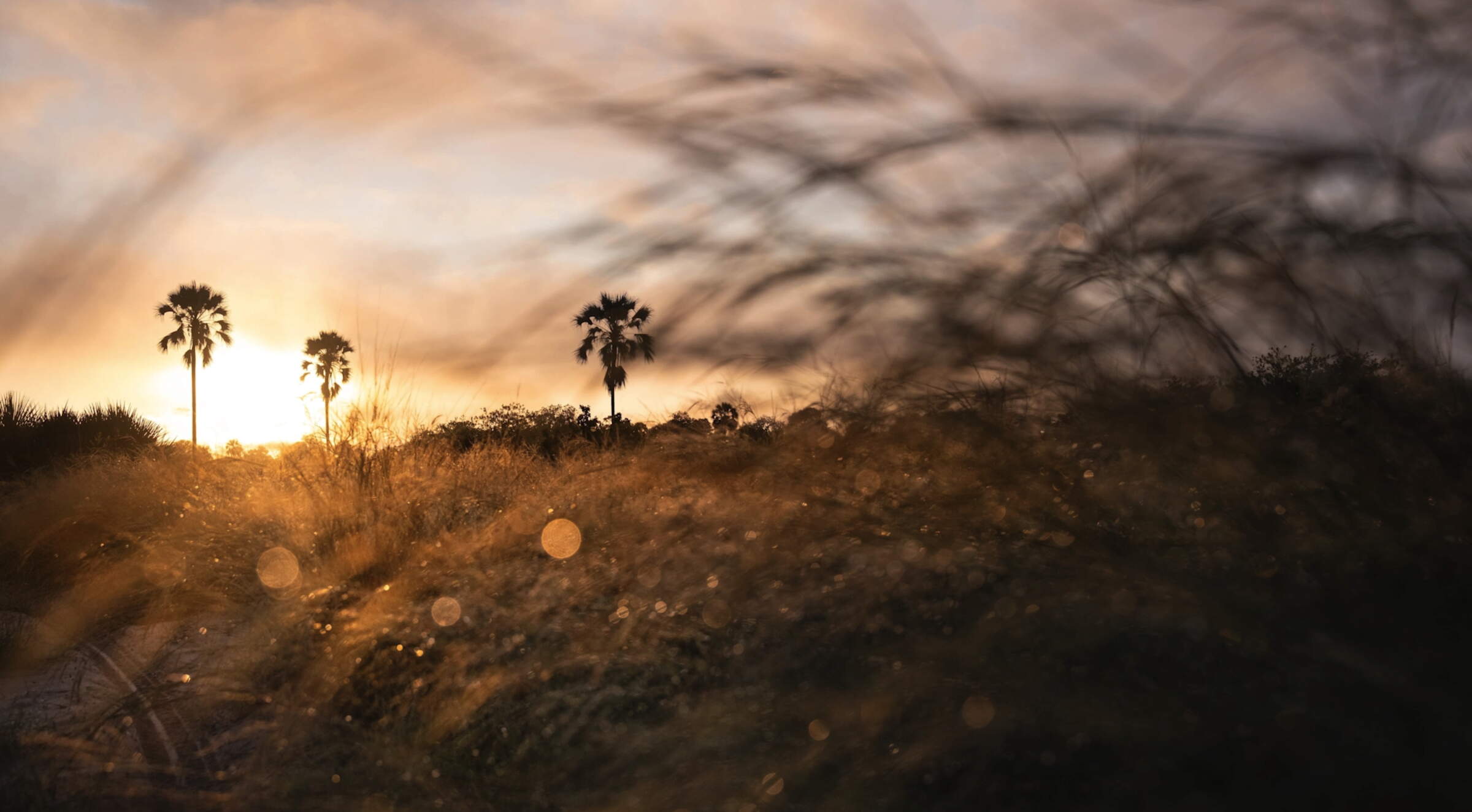
Singita Elela
Singita Elela is an exclusive safari camp on the western side of the Botswana's Okavango Delta - offering superb wildlife and water based opportunities depending on the seasonality.
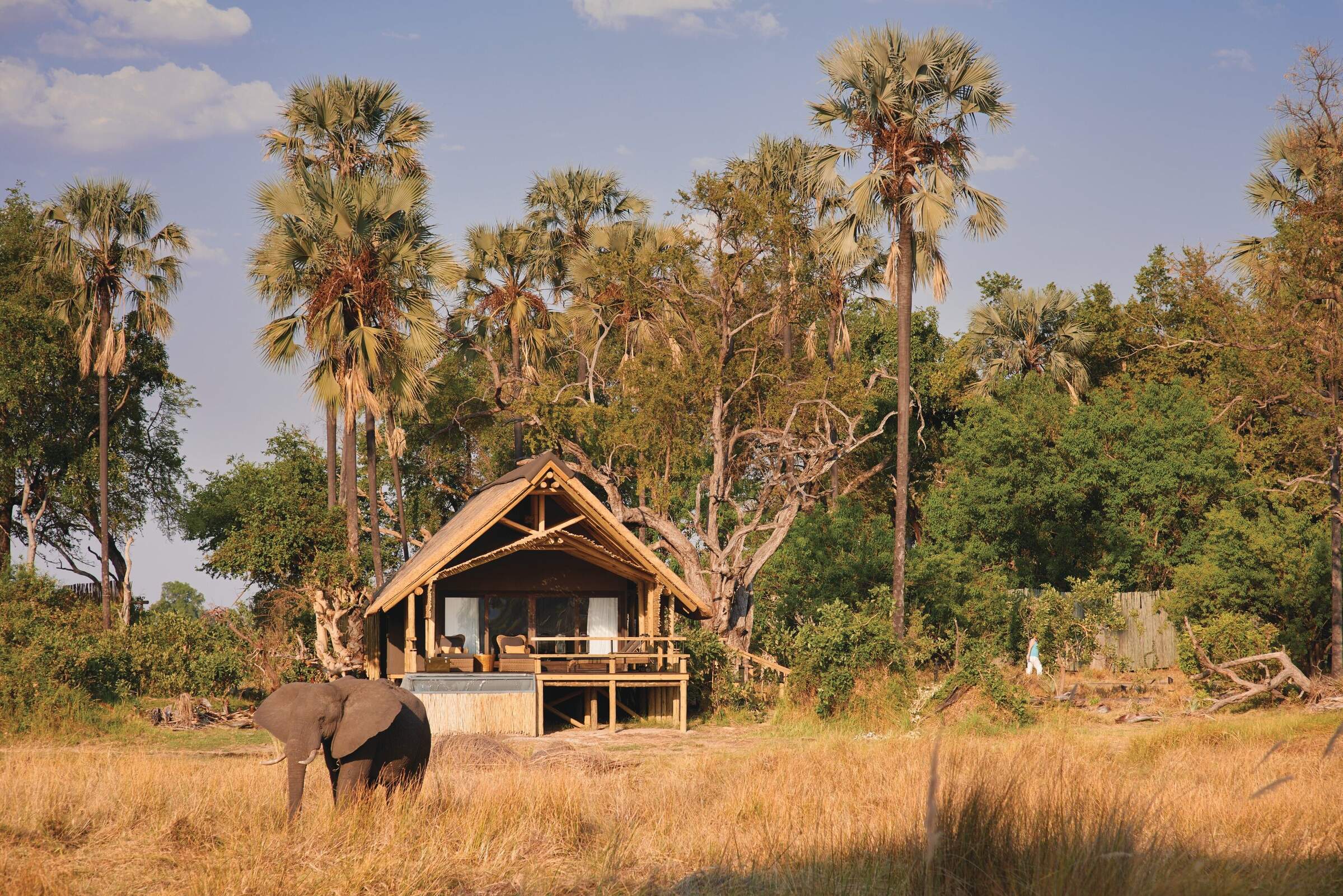
Eagle Island Lodge
Eagle Island Lodge is a luxurious camp with international-style facilities including air conditioning and intercom in each room; offering water based activities in the Okavango Delta.
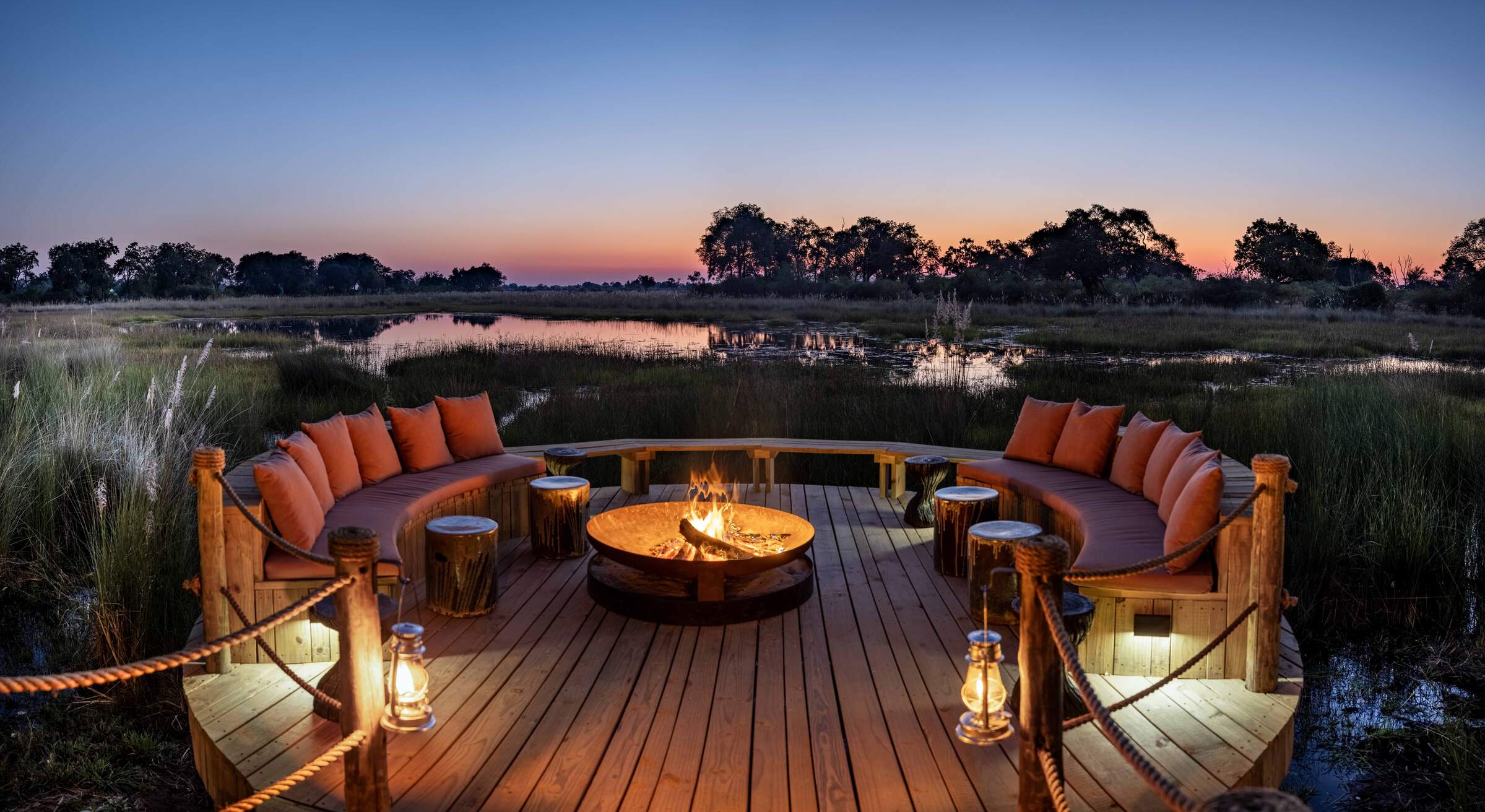
North Island Okavango
Deep in quintessentially “Okavango” territory, between deep-water and dry-land habitats, North Island focuses on a luxury safari experience with very good wildlife viewing opportunities.
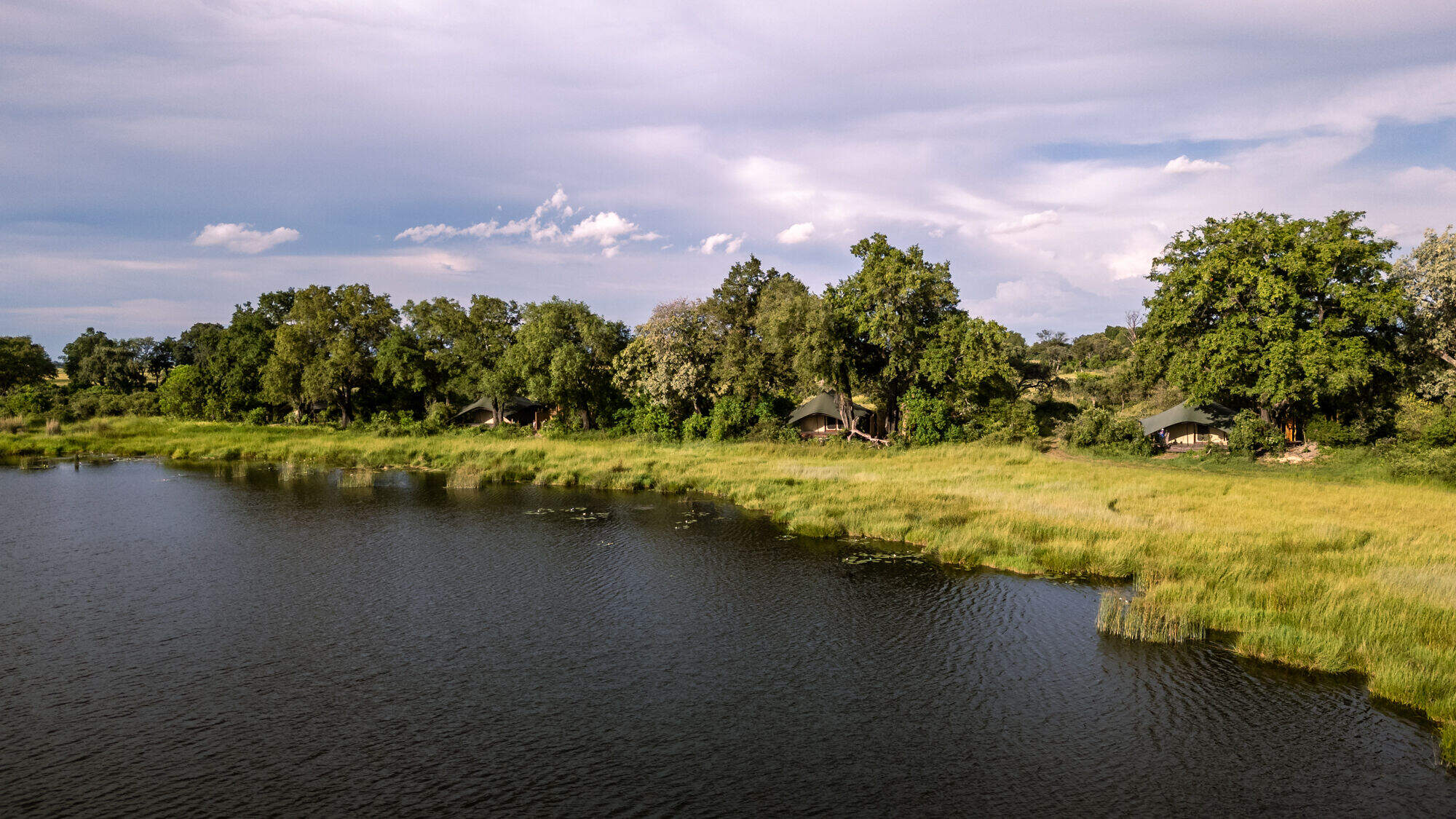
Maxa
Overlooking the permanent Maxa Lagoon, Maxa has a range of activities on offer, combining understated luxury with comfort in a remote location.
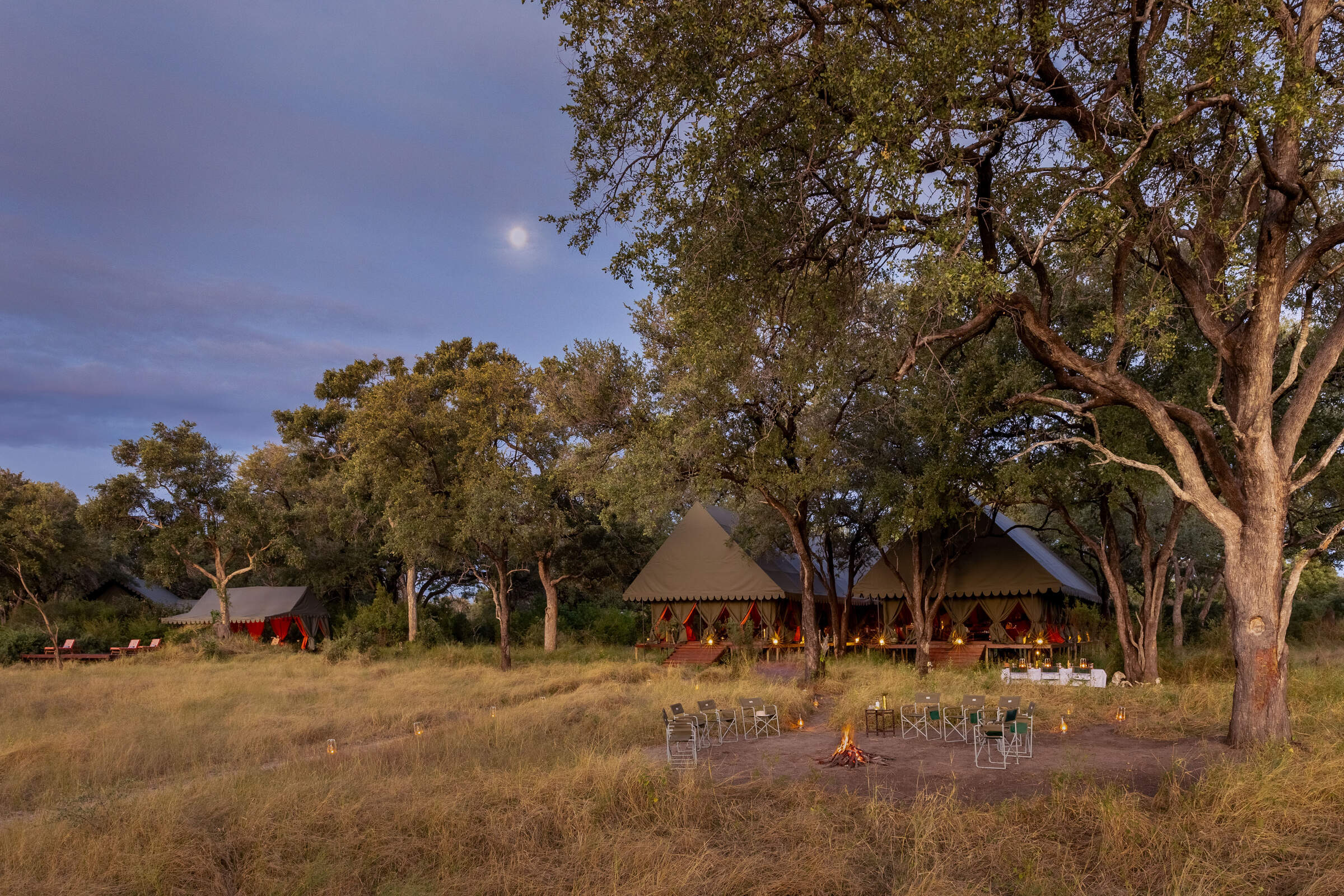
Mbamba
Deep within the northern Okavango, the classically styled Mbamba is located in the same wildlife-rich private concession as its sister camp Dukes.
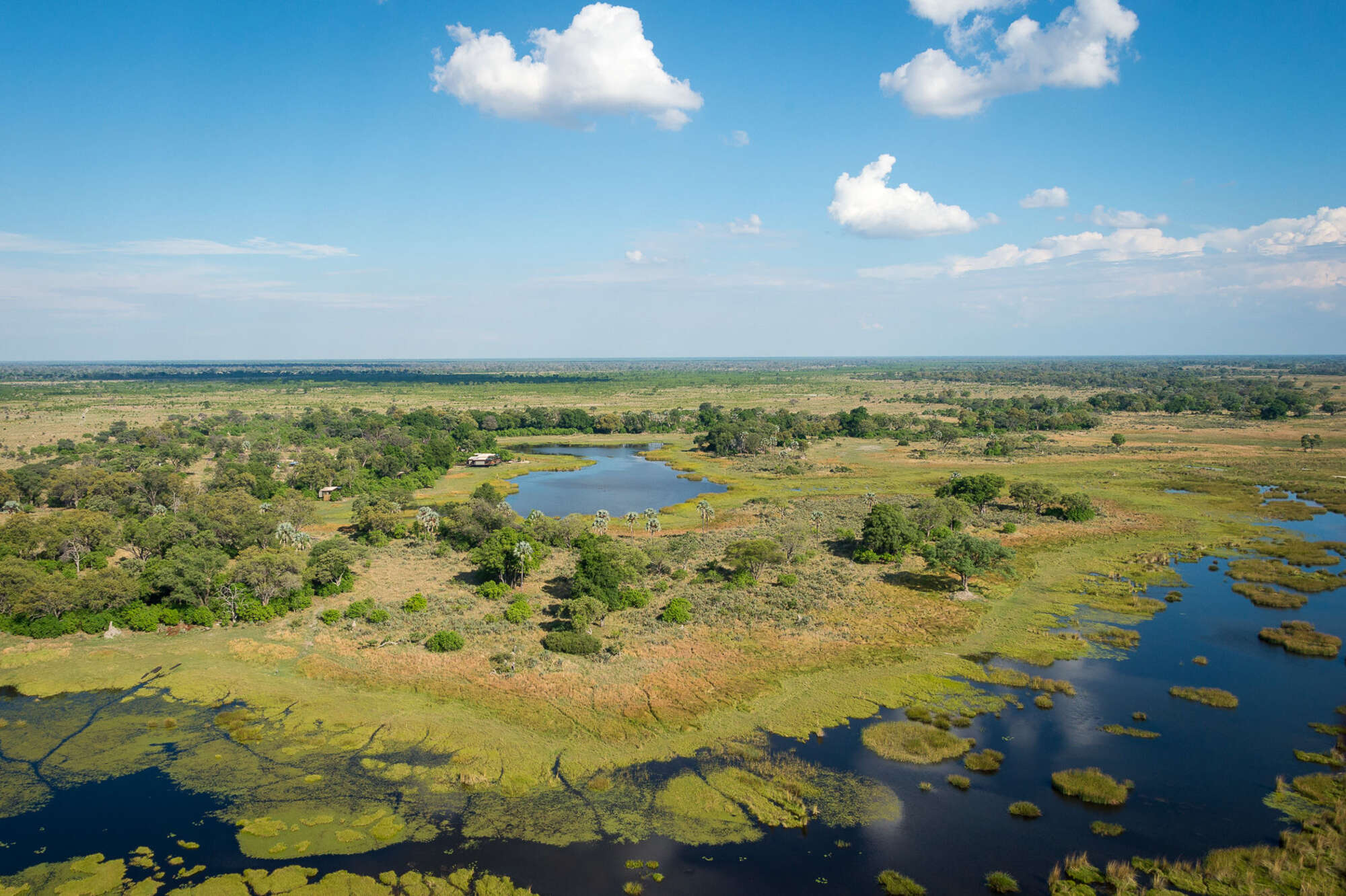
Qorokwe Camp
Luxurious and contemporary, the relatively new Qorokwe Camp is a gem in the Okavango Delta, offering land- and occasionally water-based activities in a prime wildlife area.
When to go to Okavango Delta Safari Reserves
Our month by month guide: What it's like to visit Karangoma in Okavango Delta Safari Reserves
Jan
Feb
Mar
Apr
May
Jun
Jul
Aug
Sep
Oct
Nov
Dec
Okavango Delta Safari Reserves in January
January marks the peak of the rainy season in the Okavango Delta. Evening rains are often short but heavy, accompanied by occasional dramatic thunderstorms. Temperatures remain high, although cooler than the preceding months of October to December. Wildlife can be harder to spot as animals spread out across the lush floodplains.
This month is a birdwatcher’s paradise, with migratory species in abundance over flooded areas. Rising water levels in parts of the Delta make mokoro safaris possible, offering serene and immersive experiences. The vibrant greenery and dramatic skies provide stunning opportunities for photography. With relatively low rates and fewer visitors, January is ideal for those seeking a quieter, budget-conscious Botswana safari.
- Warm temperatures with frequent evening showers
- Birdlife at its most spectacular in the Delta
- Wildlife dispersed, but insects and smaller creatures abound
- Excellent availability in Delta lodges and camps
Our view
A good time to visit, with pros & cons
Weather in January
Okavango Delta Safari Reserves in February
February mirrors January’s weather patterns, with heavy rains and slightly cooler temperatures. The Delta’s landscape is at its greenest and teeming with life. Smaller animals, insects, and vibrant birdlife dominate, as many species raise their young. The rains create temporary pools and waterholes, further dispersing larger game, while thick vegetation and tall grass adds to the challenge of spotting big wildlife.
However, Moremi Game Reserve and select areas of the Delta still offer excellent game viewing opportunities. Rising water levels enhance water activities, with boat safaris providing unique access to the Delta’s watery beauty. February is particularly rewarding for photographers seeking lush landscapes and dramatic skies and birdwatchers, with many migratory species present.
- Warm with occasional thunderstorms
- Many animals with young in the Delta
- Big game dispersed throughout wetlands
- Big game dispersed, but viewing improves in drier areas
- Lower visitor numbers and great lodge availability
Our view
This is not a great time to visit
Weather in February
Okavango Delta Safari Reserves in March
March marks the gradual end of the main rainy season in the Okavango Delta. Sunny days become more frequent, with occasional afternoon thunderstorms. The Delta remains lush and vibrant, with wildlife activity increasing as animals finish raising their young and begin congregating around permanent water sources.
Rising water levels make boat safaris a highlight, offering intimate access to the Delta’s waterways. Birdwatching is excellent, with both resident and migratory species thriving. With fewer visitors, March offers a quieter, more personal safari experience.
- Rains taper off but temperatures remain warm
- Occasional small thunderstorms in Delta
- Wildlife begins congregating around water sources
- Ideal conditions for boat safaris
- Few tourists and attractive rates at camps
Our view
A good time to visit, with pros & cons
Weather in March
Okavango Delta Safari Reserves in April
April brings clearer skies to the Okavango Delta, with the landscape remaining green and lush. Night temperatures begin to drop, especially in the southern Delta. The annual floods from Angola start to flow through the northern Delta, filling channels and lagoons, creating ideal conditions for water-based activities like boat safaris.
Wildlife viewing improves as vegetation thins and predator activity increases with cooler evenings. Moremi Game Reserve and the private concessions offer rewarding game drives, and walking safaris on the larger islands, such as Chief’s Island, become popular during this time. Birdwatching remains excellent, with many migratory species still present. April’s combination of pleasant weather, wildlife activity, and relatively low rates makes it a rewarding time to visit.
- Cooler evenings and occasional light showers
- Floodwaters begin to fill Delta channels
- Predator-prey interactions increase
- Ideal for walking safaris and boat trips
- Popular shoulder season, rates fairly low
Our view
A good time to visit, with pros & cons
Weather in April
Okavango Delta Safari Reserves in May
May is a popular time to visit the Okavango Delta, marking the last month of the shoulder season. The annual floods continue to spread through the Delta, transforming the landscape. Cooler mornings and evenings encourage predator activity, while thinning vegetation makes wildlife spotting easier, though some tall grasses may still obstruct views.
May offers excellent photographic opportunities with clear, crisp air. It's a favourite time for many visitors, combining good wildlife sightings with pleasant weather. Camp bookings throughout the Delta fill up quickly during this period.
This is a perfect month for scenic flights, offering breathtaking views of the advancing floodwaters. Mokoro trips through the Delta’s tranquil waterways provide a unique perspective on the environment. Camps start to fill quickly as the Delta’s combination of pleasant weather and excellent wildlife sightings makes it a favourite among safari-goers.
- Cool mornings and evenings with little rain
- Improved game viewing as Delta grasses thin
- Predator activity increasing in drier areas
- Scenic flights and water activities highly recommended
- Last month of shoulder season for camps
Our view
A very good time to visit
Weather in May
Okavango Delta Safari Reserves in June
June signals the start of the dry season in the Okavango Delta. Days are warm, with clear skies, while mornings and evenings can be cold, occasionally reaching freezing temperatures. The annual floods reach their peak, creating spectacular conditions for water-based activities like boat safaris along the Khwai River and in private concessions.
Wildlife concentrates around permanent water sources as surface water dries up, improving game viewing. The thinning vegetation and crisp, clear air make June perfect for photography. High demand for camp bookings reflects its popularity, as this month combines great game viewing and pleasant weather.
- Warm days, cold mornings and nights
- Peak floodwaters make boat safaris unforgettable
- Wildlife congregates around permanent water sources
- Excellent conditions for photography
- High demand for camps and lodges
Our view
Fantastic: the very best time to visit
Weather in June
Okavango Delta Safari Reserves in July
July offers cool mornings and evenings with warm, sunny days, making it ideal for wildlife viewing. The floodwaters remain at their peak, providing excellent opportunities for boat safaris. Vegetation continues to thin, enhancing visibility on game drives in Moremi Game Reserve and the Okavango’s private reserves.
Large herds of elephants and buffalo are common sights as they gather near water sources. Predator sightings, including lions and leopards, increase as prey concentrates. Birdwatching is rewarding, and the crisp winter air creates stunning photographic conditions. July is one of the most popular months to visit, with many lodges fully booked well in advance.
- Comfortable days, cold mornings and nights
- Excellent game viewing and predator activity
- Moremi and Khwai areas become busy
- Private concessions offer exclusivity
- High season rates; advance bookings essential
Our view
Fantastic: the very best time to visit
Weather in July
Okavango Delta Safari Reserves in August
August remains a highly sought-after month for visiting the Okavango Delta. Nights are cool, while daytime temperatures rise gradually. Wildlife viewing is exceptional as animals concentrate near water sources, while the Delta’s floods are typically at their peak, offering picturesque settings for excellent boat safaris.
Walking safaris and game drives in areas like Moremi Game Reserve and Chief’s Island are particularly rewarding. Large herds of elephants and buffalo are common sights, and predator activity is high, with increased chances of seeing lions, leopards, and wild dogs hunting. The clear skies and lack of humidity create excellent stargazing conditions. With many travellers visiting during European and North American holidays, lodge availability can be challenging.
- Dry, warm days and cool nights in the Delta
- Fantastic wildlife viewing near water sources
- Excellent opportunities for game drives and boat safaris
- Cloudless skies, spectacular stargazing
- High demand for accommodation – book early
Our view
Fantastic: the very best time to visit
Weather in August
Okavango Delta Safari Reserves in September
September is a favourite for many safari-goers in the Okavango Delta. Daytime temperatures rise, but nights remain cool. The landscape transforms as greenery fades, and hazy conditions create dramatic sunsets. Wildlife viewing peaks as animals cluster around permanent water sources, with especially large numbers of elephants and buffalo. This concentration of prey attracts predators, increasing chances of witnessing exciting hunts.
The return of migratory birds enhances birdwatching. Water levels begin to recede, but boat cruises are still possible. Dusty conditions may challenge photographers, but the stunning landscapes and wildlife action more than make up for it.
- Warm days, cool nights in the Delta
- Prime month for Okavango wildlife viewing
- Migratory birds return, enriching birdwatching
- Spectacular sunsets and dramatic scenery
- High season rates, many Delta camps full
Our view
Fantastic: the very best time to visit
Weather in September
Okavango Delta Safari Reserves in October
October is the hottest and driest month in the Okavango Delta. Wildlife concentrates around the last remaining water sources, creating some of the most dramatic game viewing opportunities of the year. Predator-prey interactions are frequent and visibility is excellent, making for thrilling safaris.
Walking safaris are particularly rewarding, especially on smaller islands, but early starts are essential to avoid the midday heat. Towards the end of the month, the first rains may bring relief and begin rejuvenating the parched landscape. Despite the heat, October offers excellent big-game viewing and dramatic photographic moments of animal interactions.
- Hot days, with late-month chances of rain
- Outstanding big-game viewing near water sources
- Water activities limited as floods recede
- Walking safaris provide unique experiences
- Final month of the peak safari season
Our view
Fantastic: the very best time to visit
Weather in October
Okavango Delta Safari Reserves in November
November marks the start of the green season in the Delta. Rising humidity and temperatures often lead to the first heavy rains; these are typically short, heavy showers in the late afternoon or night, creating spectacular scenes and bringing a flush of green to the parched landscape. Wildlife begins to disperse as waterholes refill, but game drives still offer rewarding sightings.
Water levels may be low, limiting boat activities, but November is exceptional for birdwatching, with the arrival of many migratory species. Scenic flights highlight the contrast between dry and wet areas. The first two weeks are popular for travellers seeking good game viewing at lower rates as the Delta transitions into its shoulder season.
- Hot, humid days in the Delta
- Dramatic rain showers , increasing as month progresses
- Migratory birds arrive in abundance
- Wildlife watching good, but less predictable
- Shoulder season offers mid-range rates
Our view
A good time to visit, with pros & cons
Weather in November
Okavango Delta Safari Reserves in December
December sees the rainy season in full swing across the Okavango Delta, bringing some respite from high temperatures. Game viewing becomes more challenging as wildlife disperses, but great sightings can still be had. The landscape transforms dramatically, with lush vegetation sprouting across the Delta. This period is excellent for birdwatching, with numerous migratory species present.
Water levels begin to rise, gradually improving conditions for boat safaris. The green season offers unique photographic opportunities, with dramatic skies and newborn animals. December is ideal for visitors seeking a more intimate Delta experience, with fewer tourists and lower rates at many camps and lodges. The combination of wildlife, birdlife, and scenic beauty makes it a rewarding time to visit.
- Warm temperatures
- High chance of rain in short, heavy storms
- Wildlife more dispersed across Delta
- Game viewing more challenging in wetlands
- Low-season rates and fewer visitors in most Delta camps
Our view
A good time to visit, with pros & cons
Weather in December

Looking for inspiration on where to travel next?
Visit our trip chooser to explore your options and find inspiration for your perfect African adventure
Inspire me